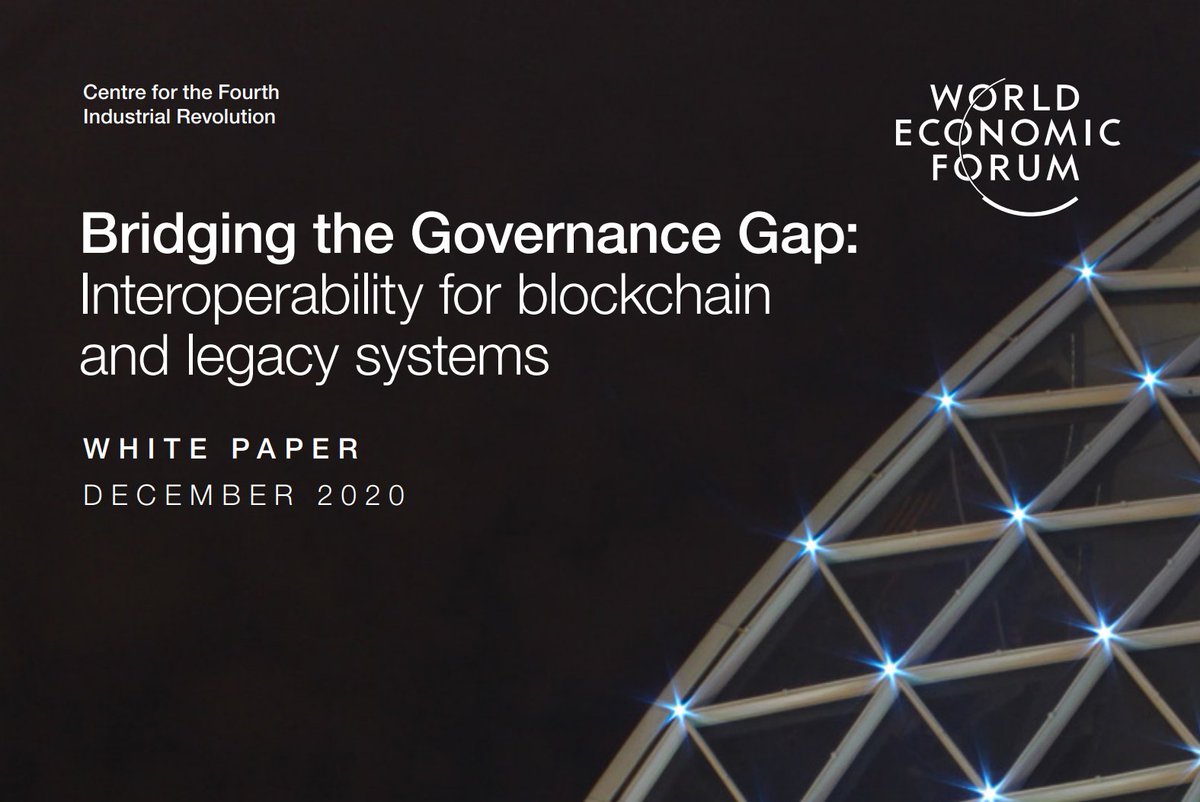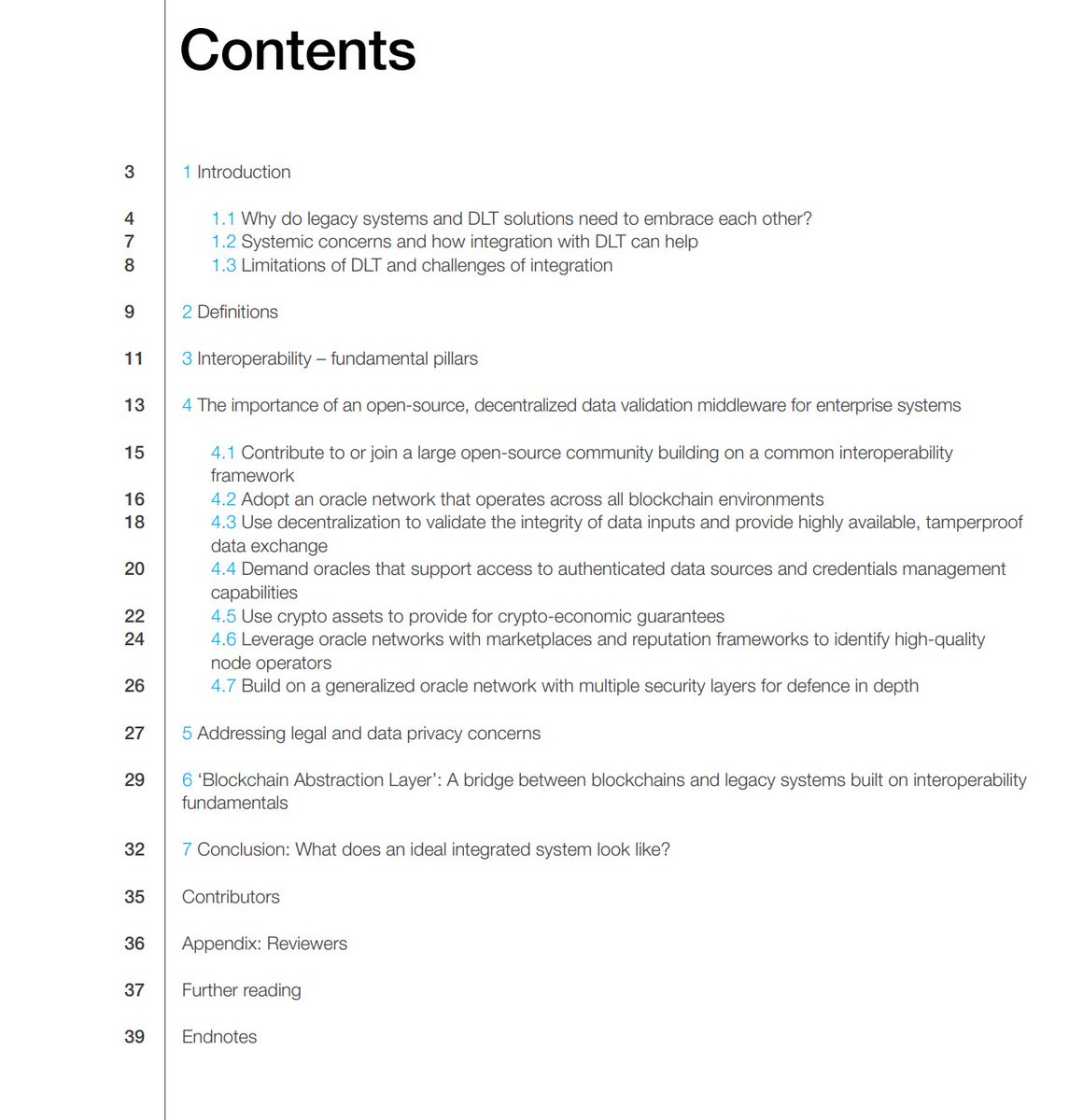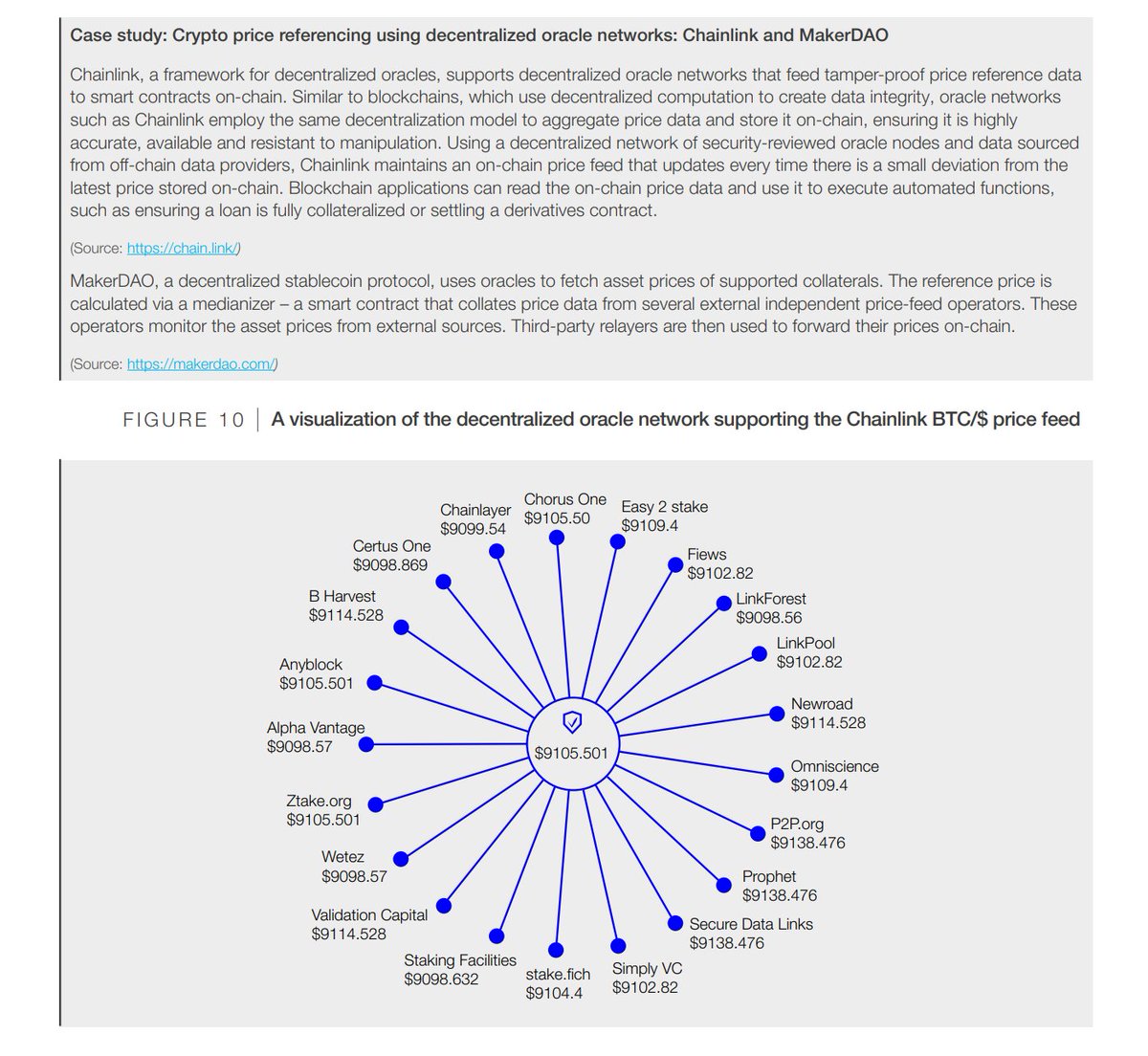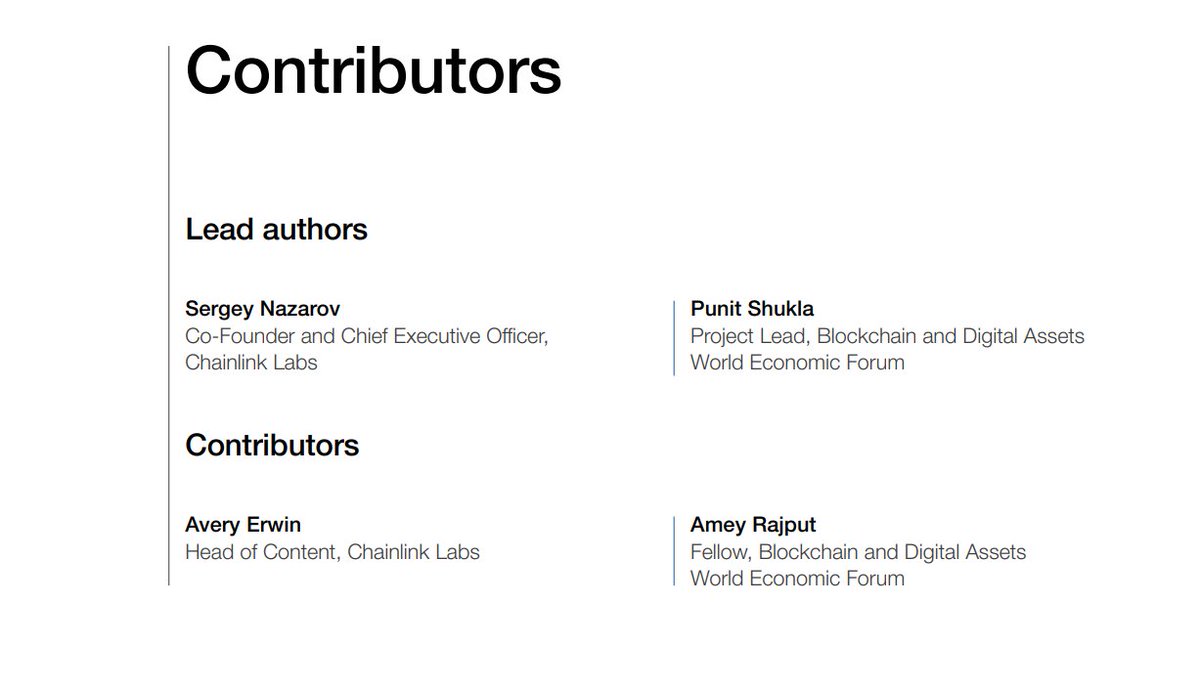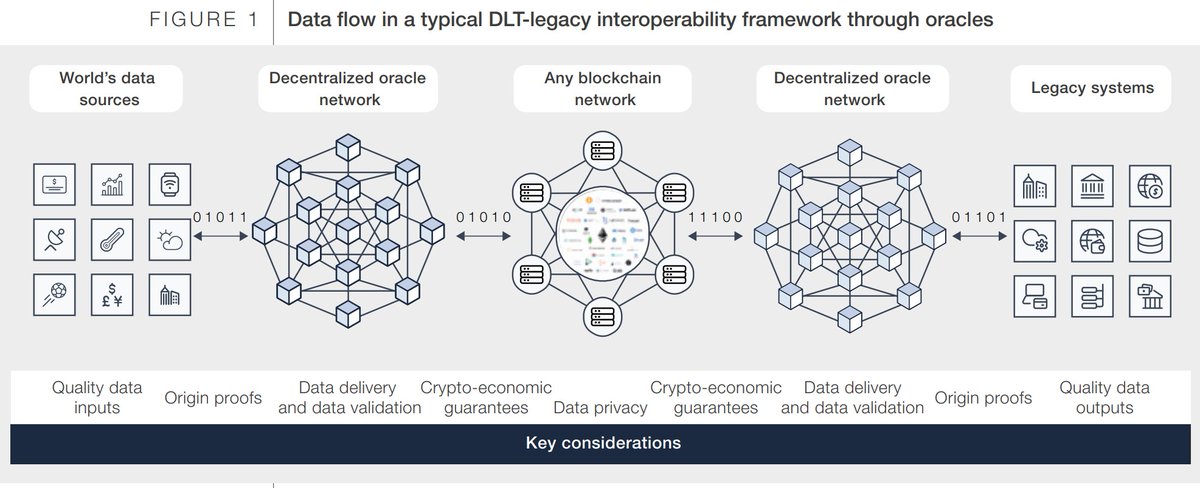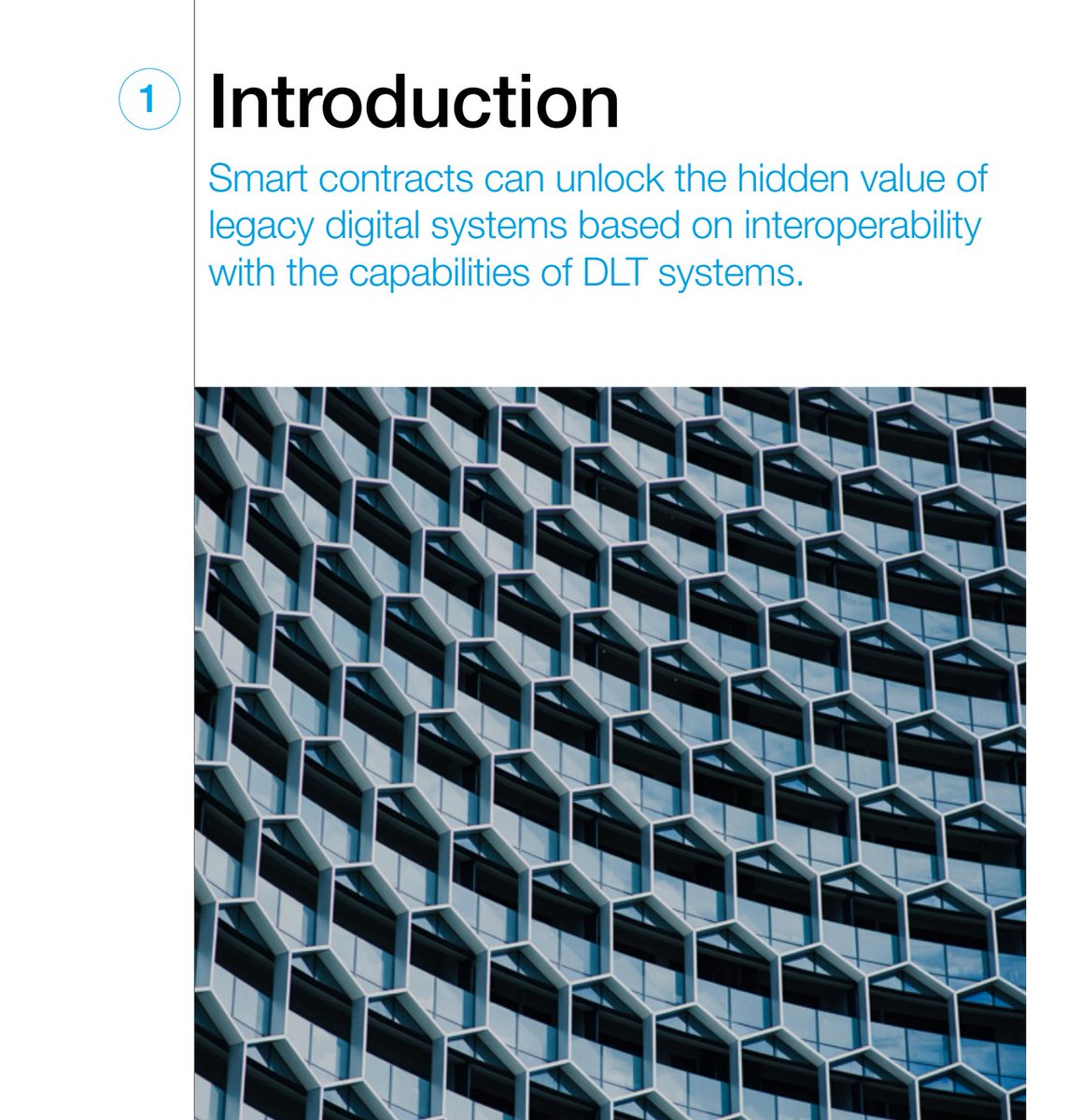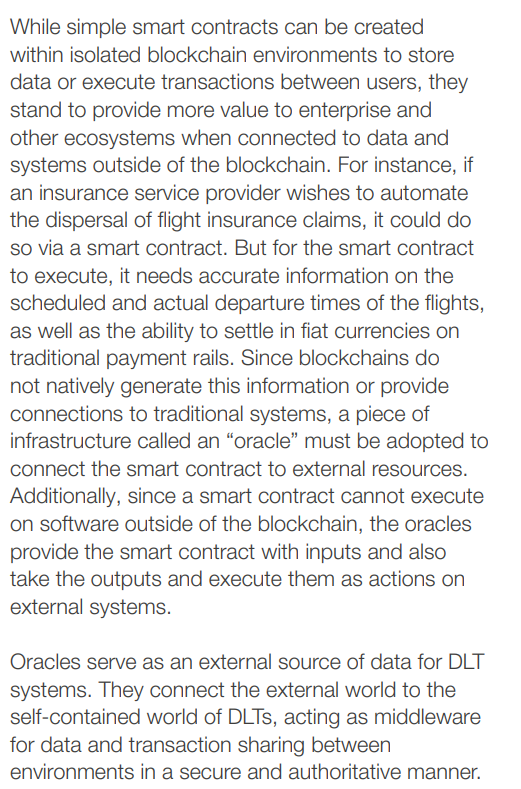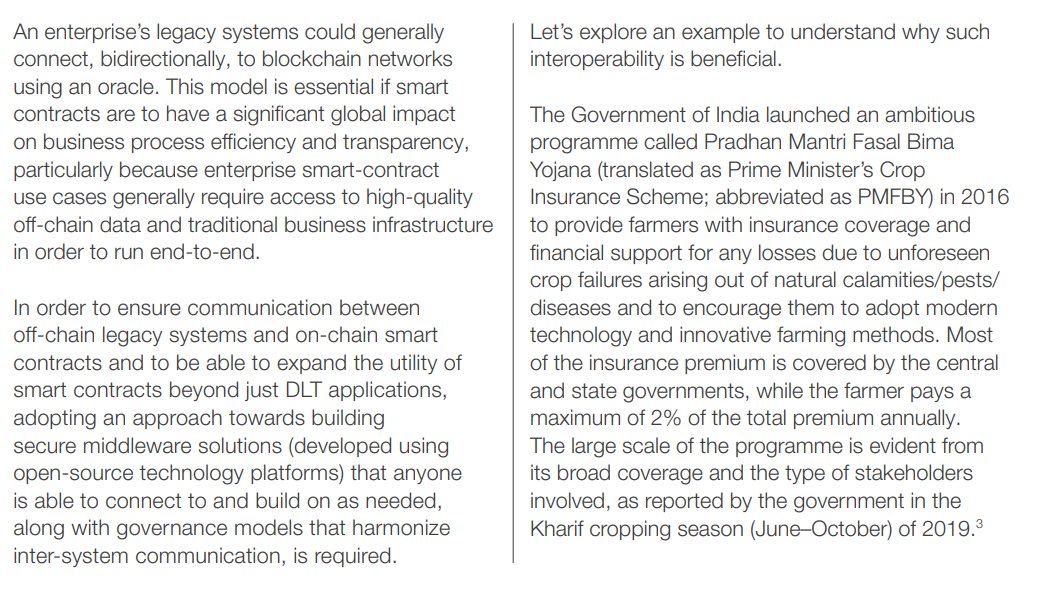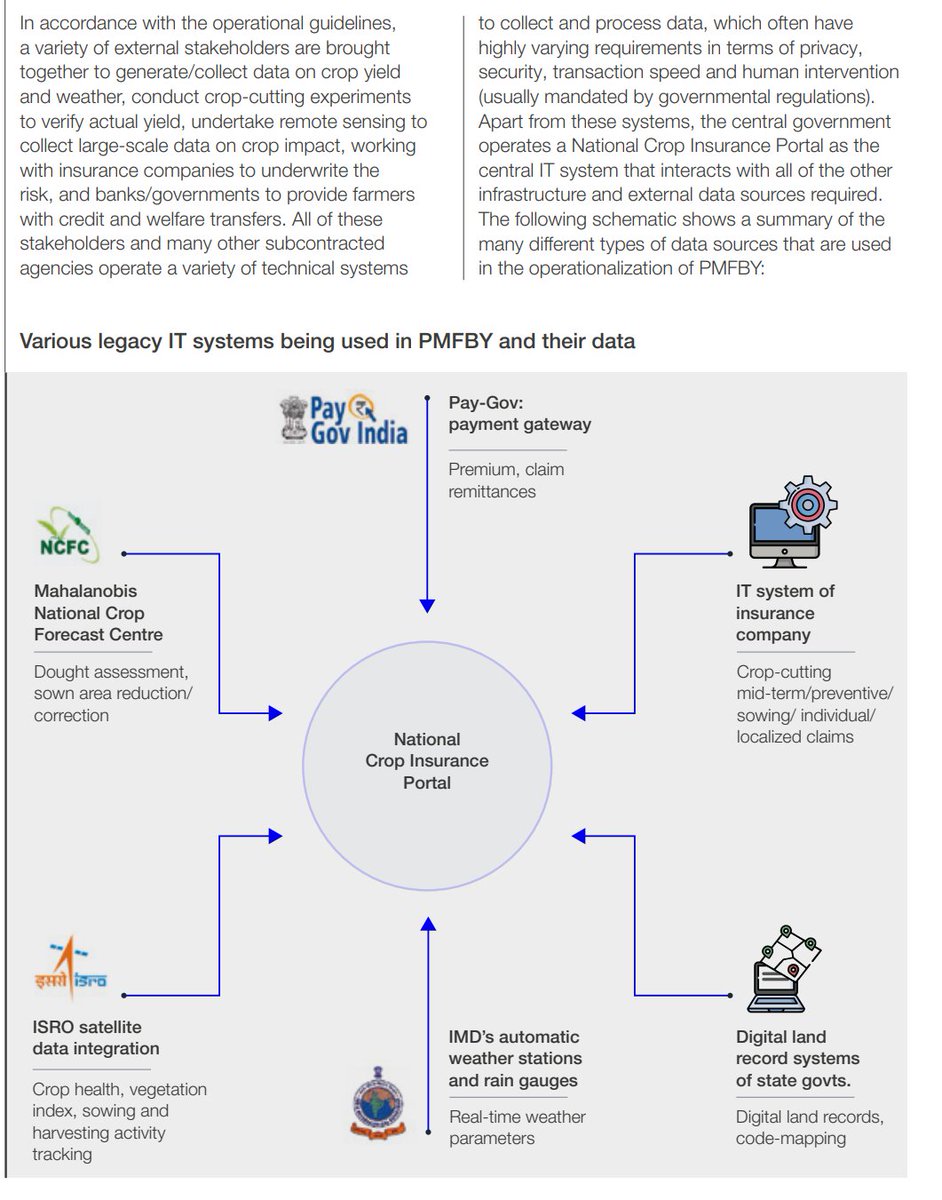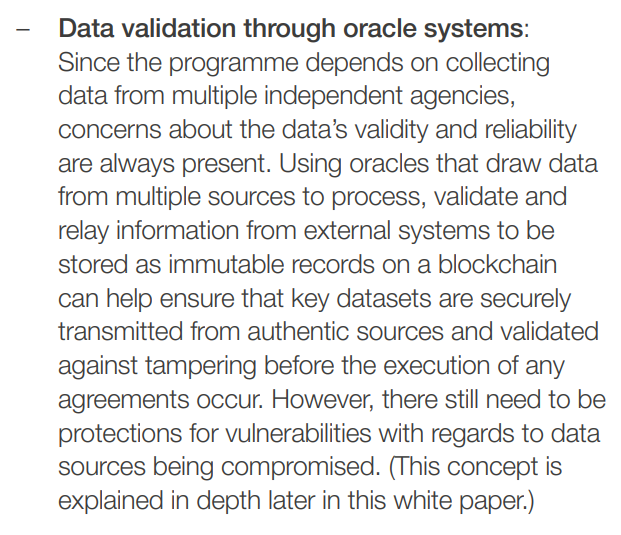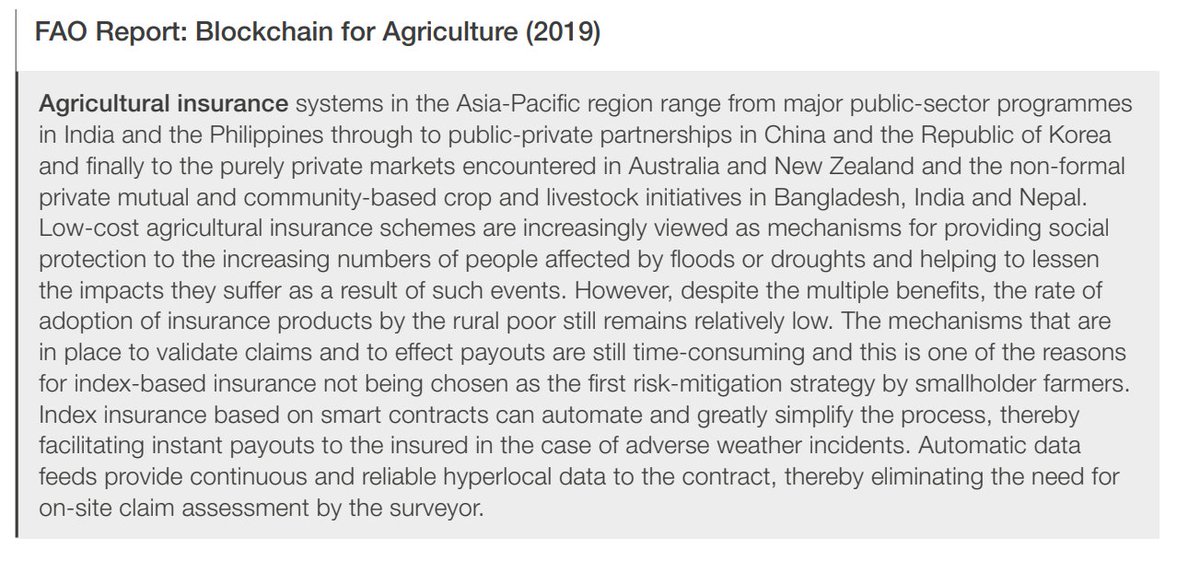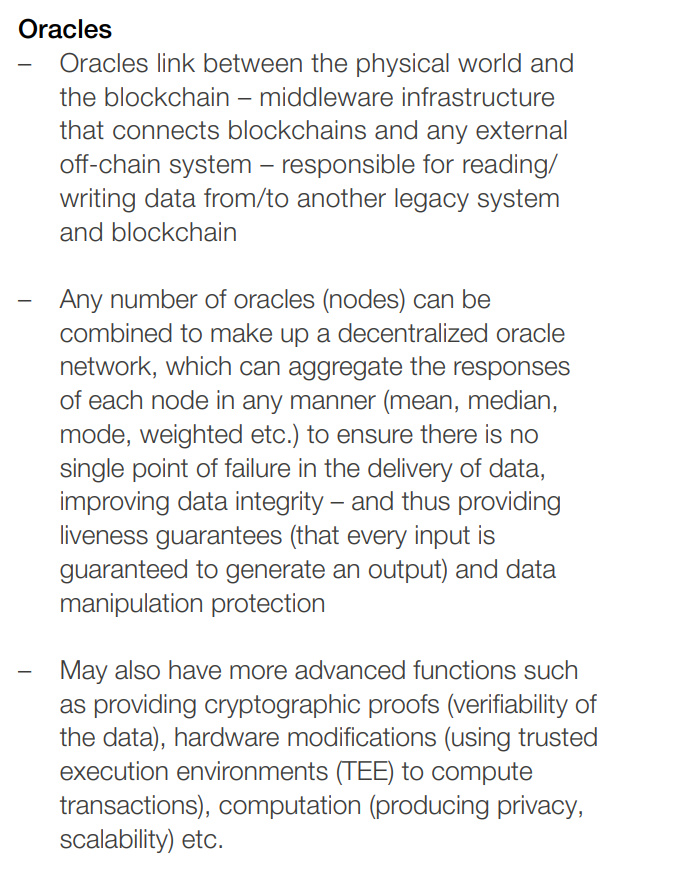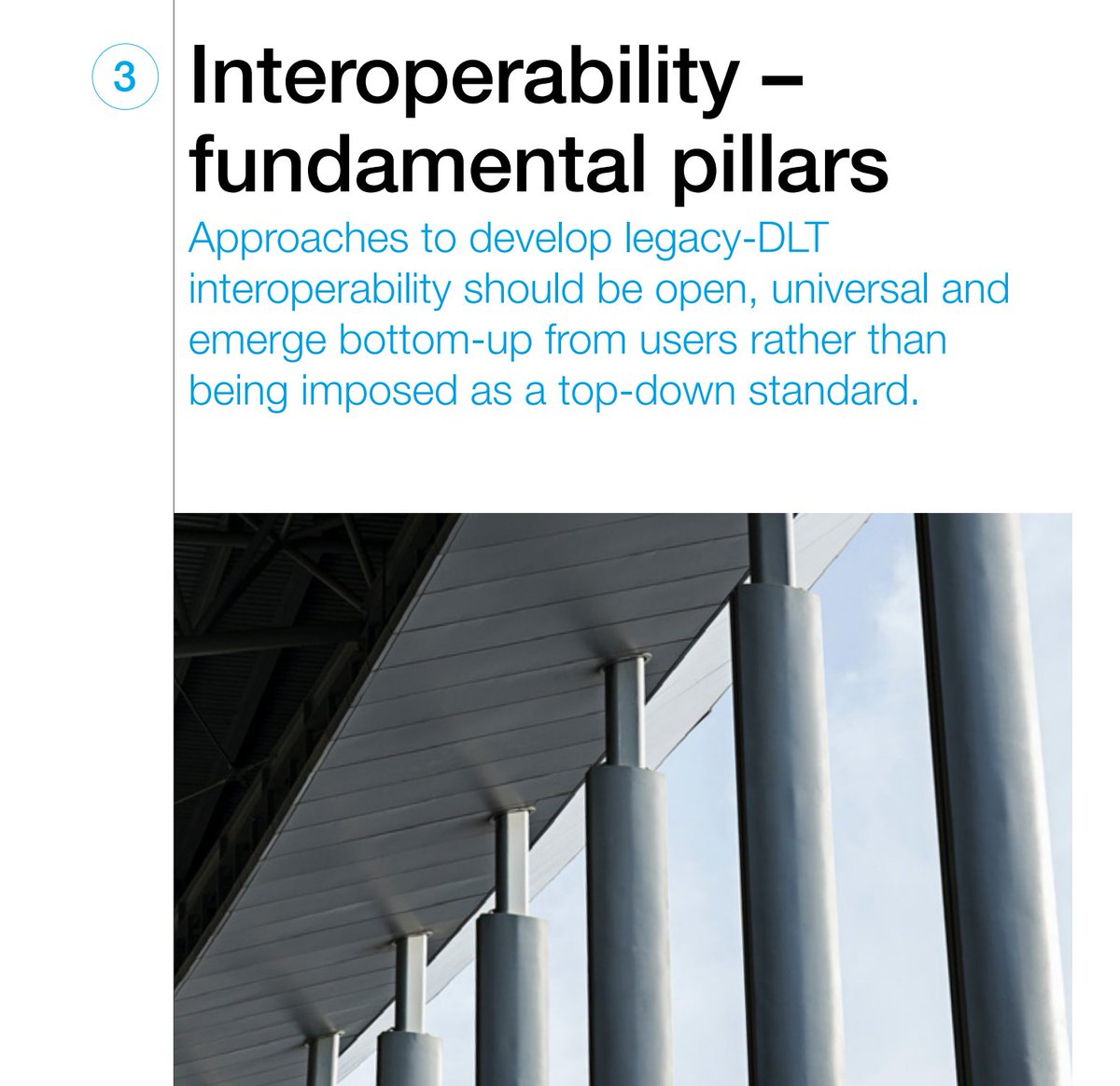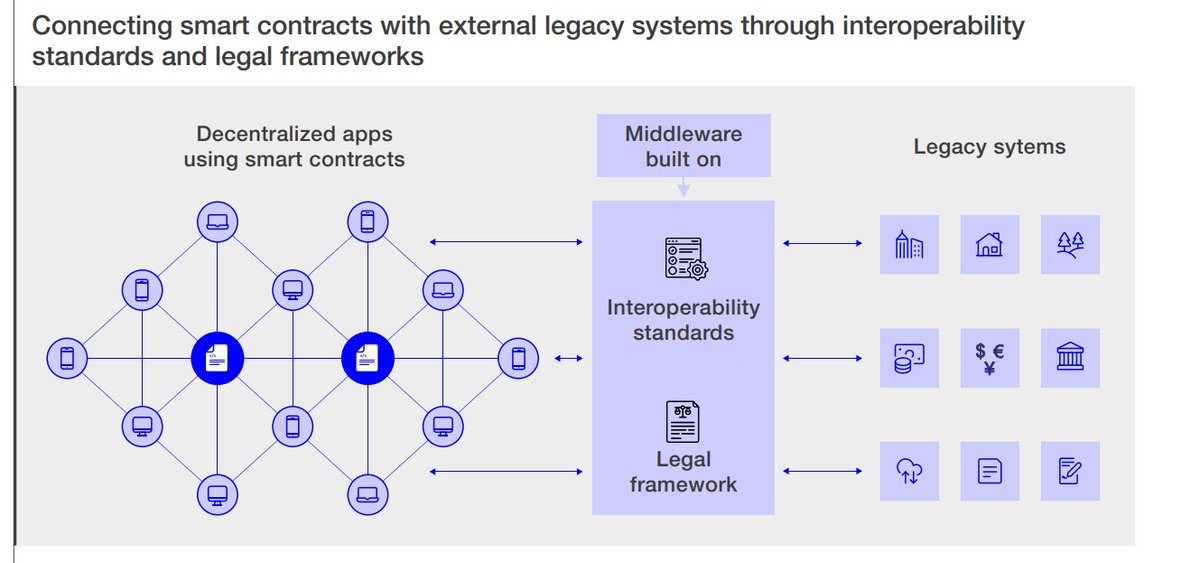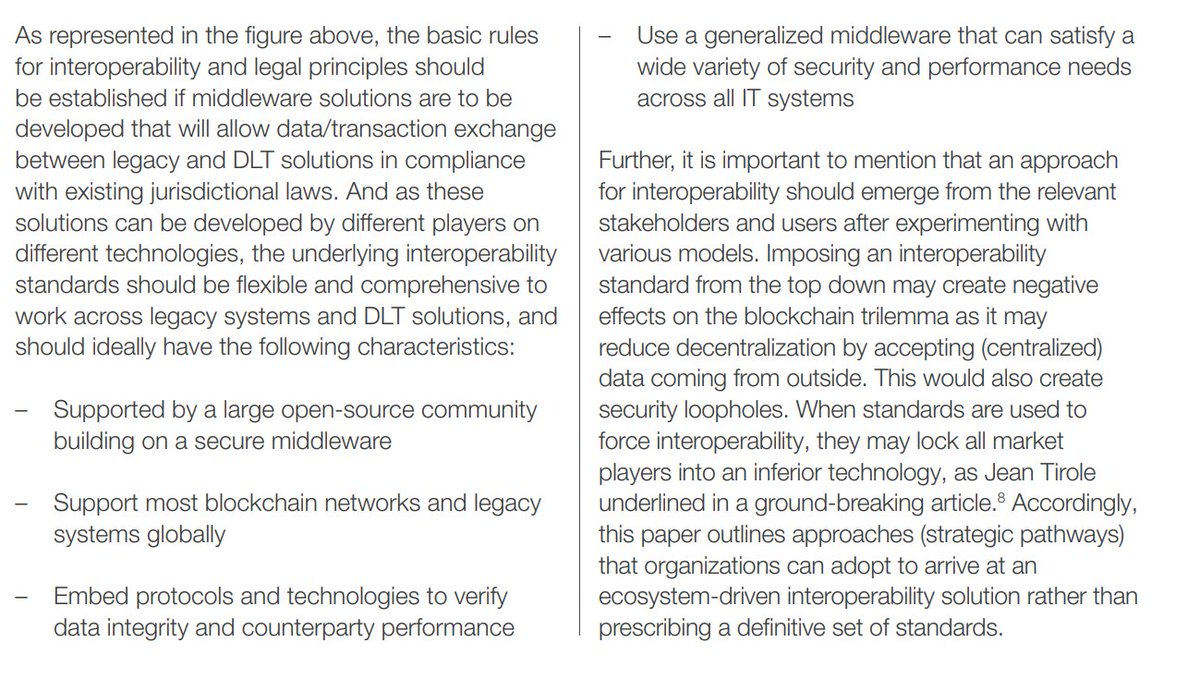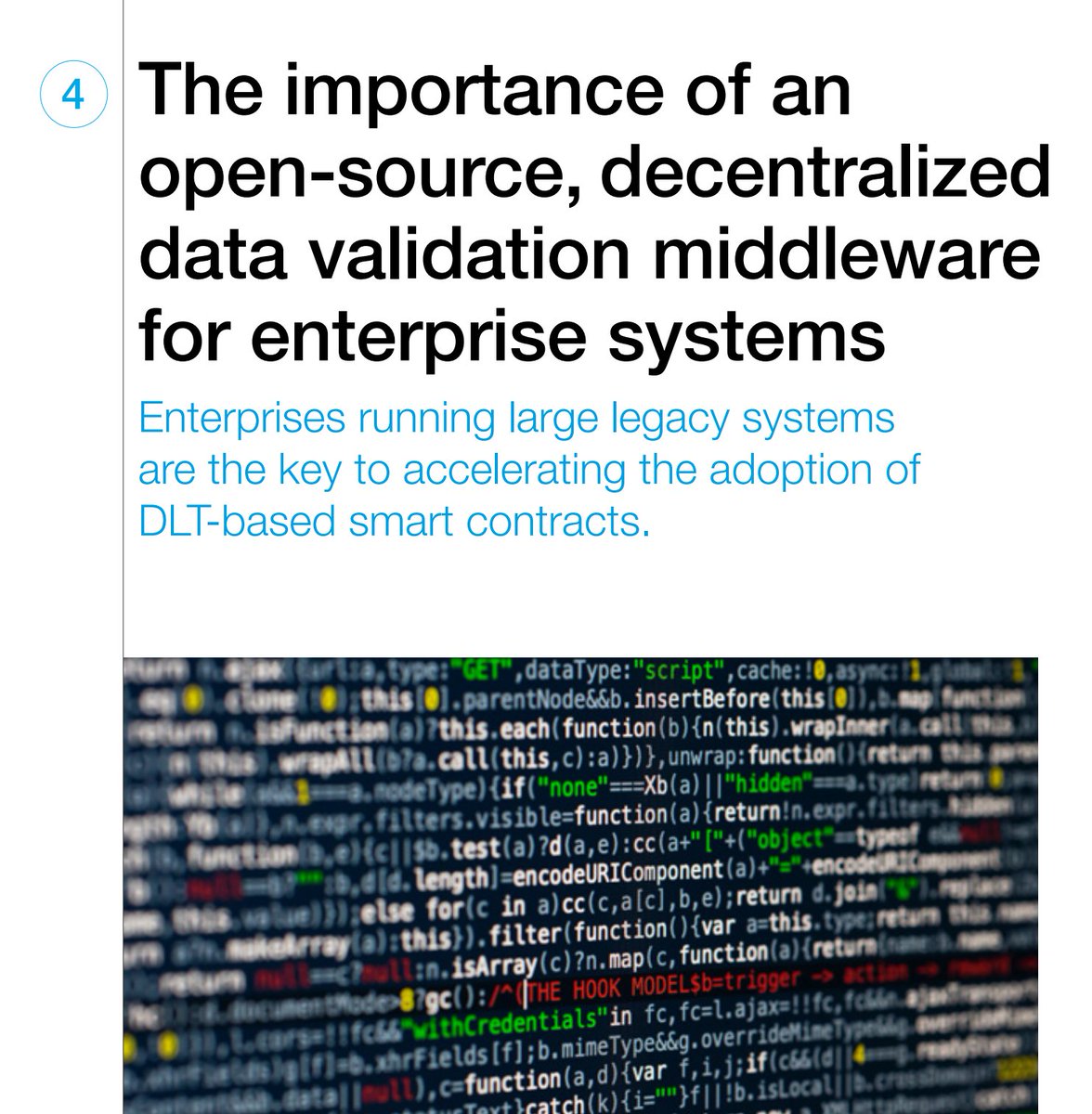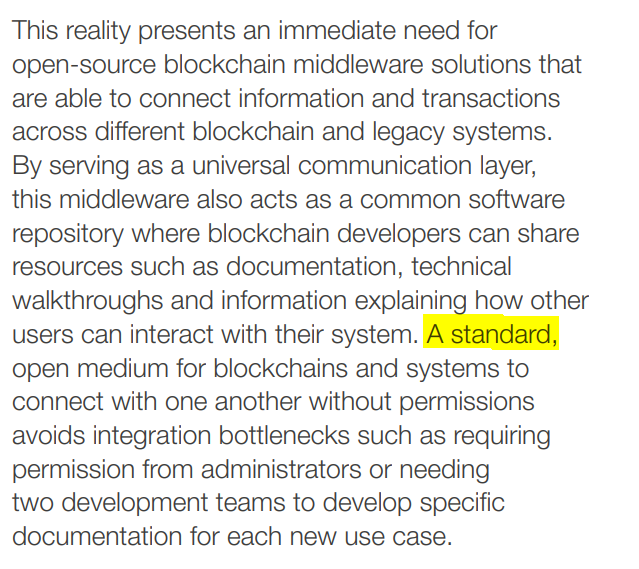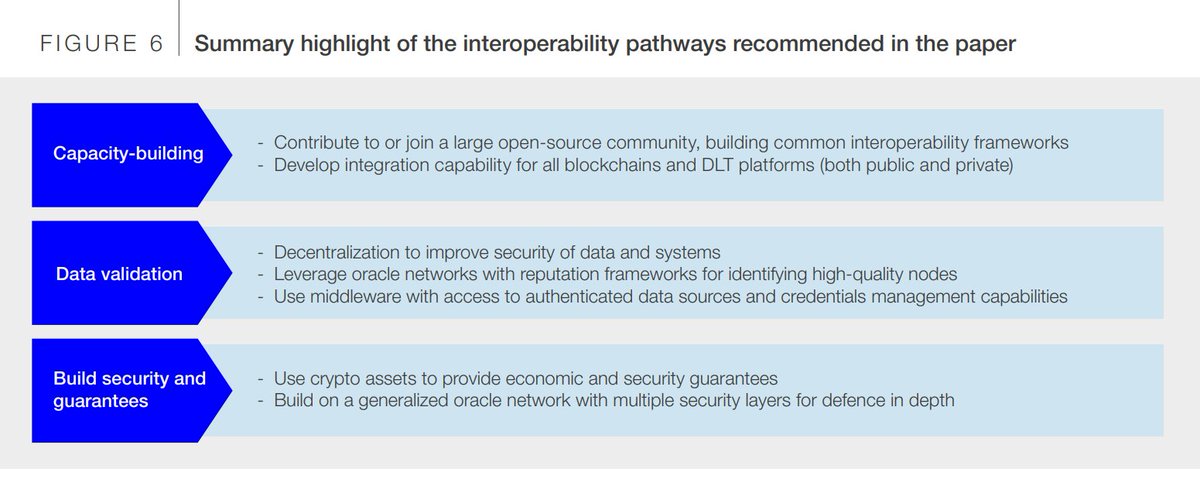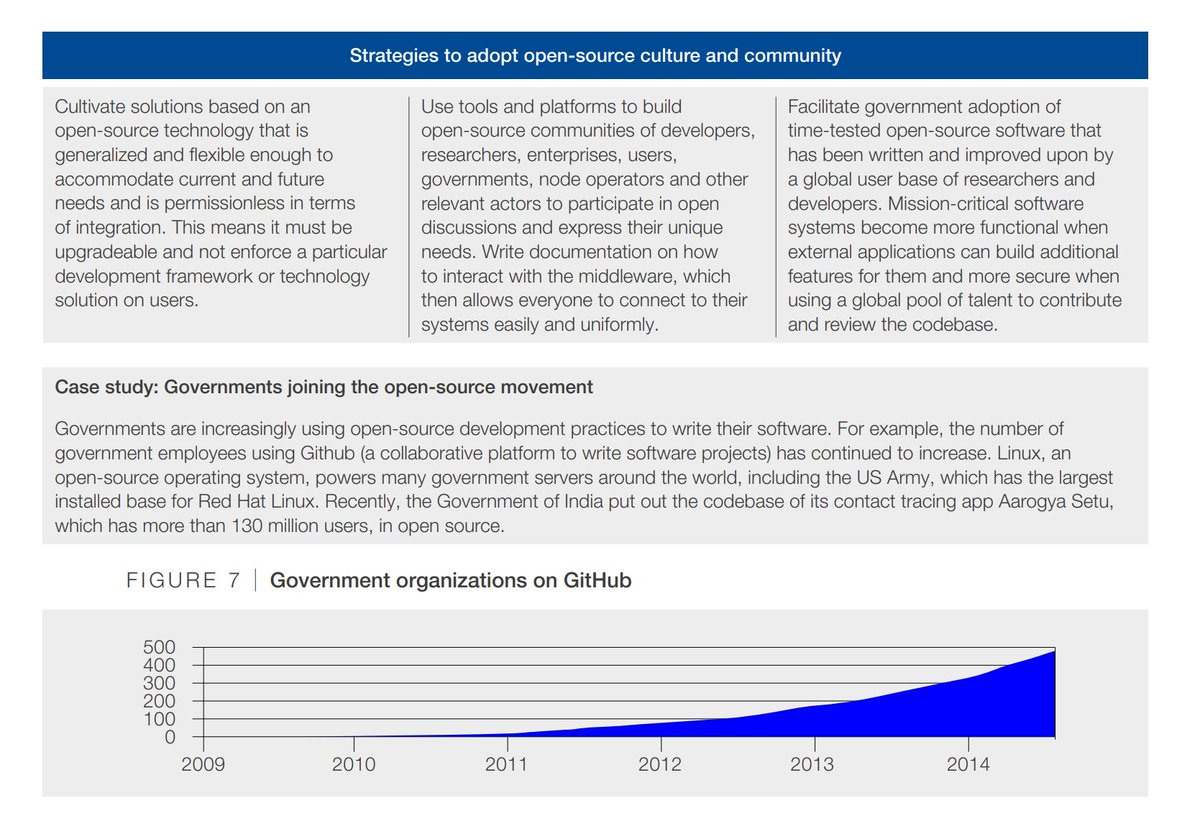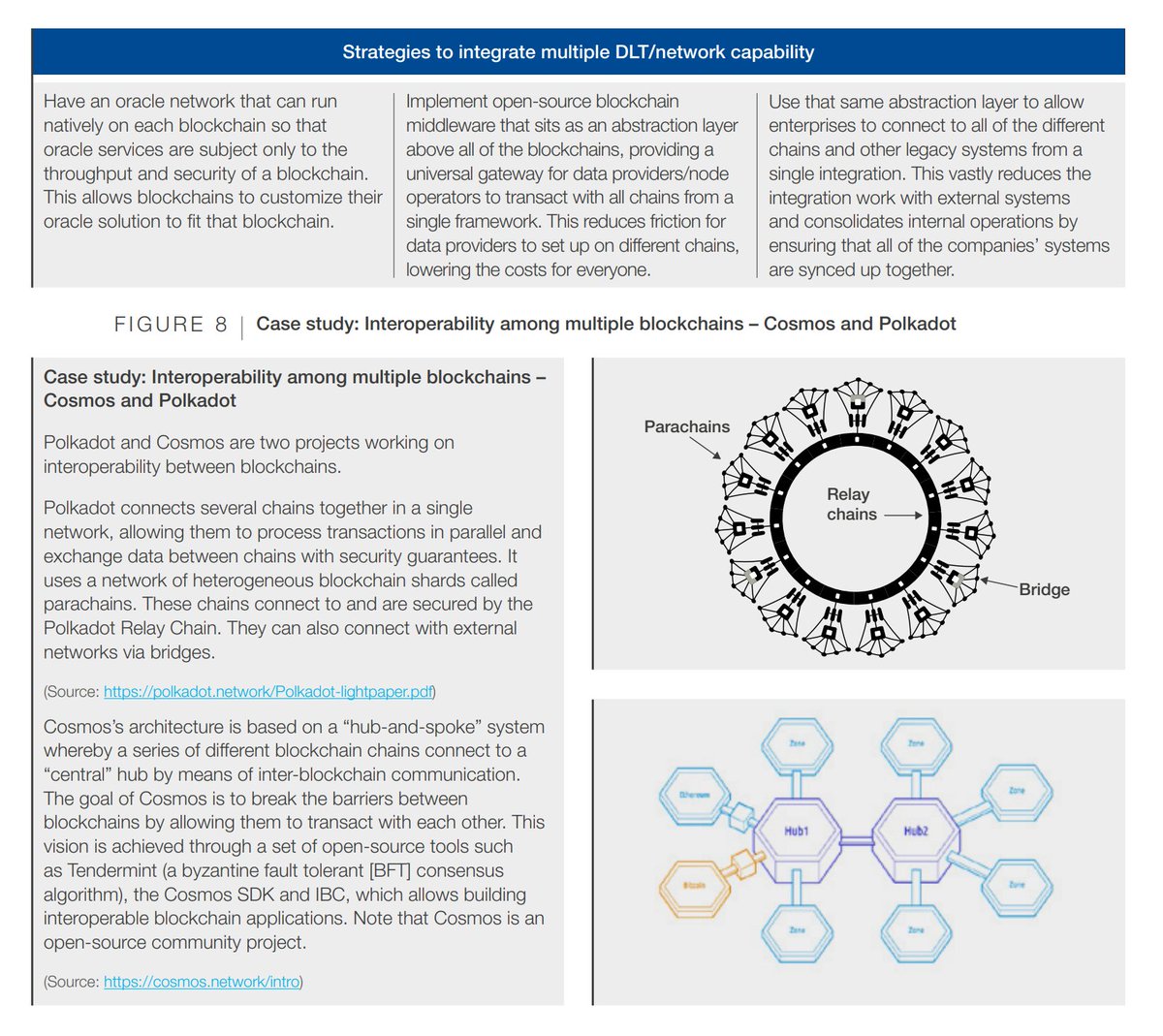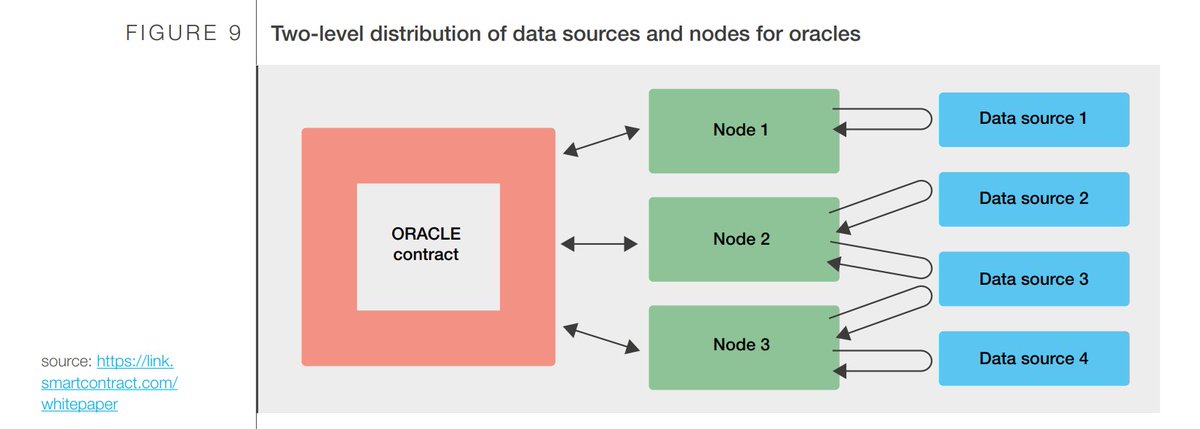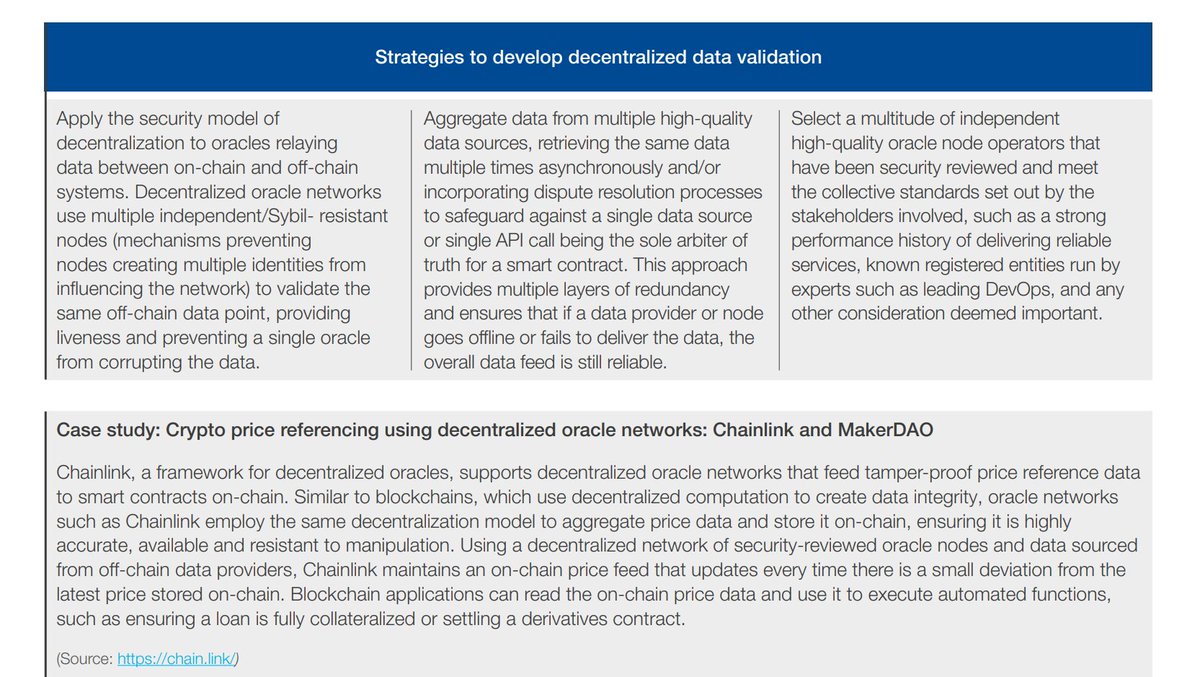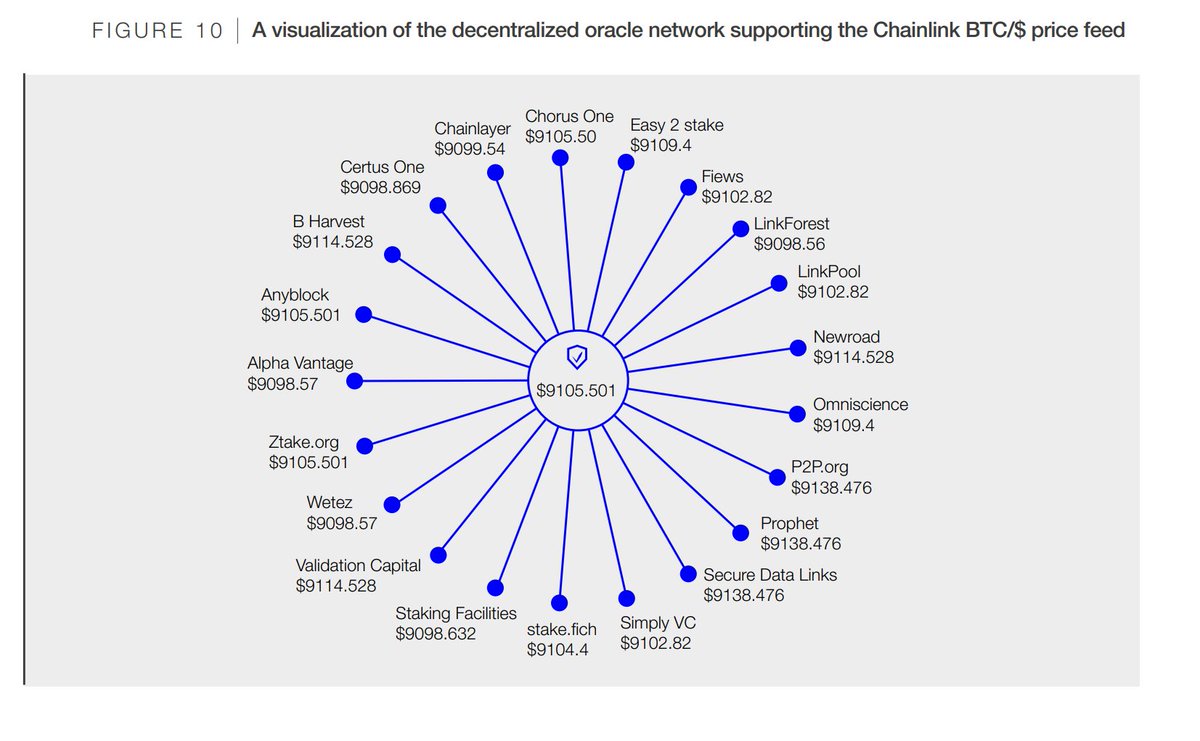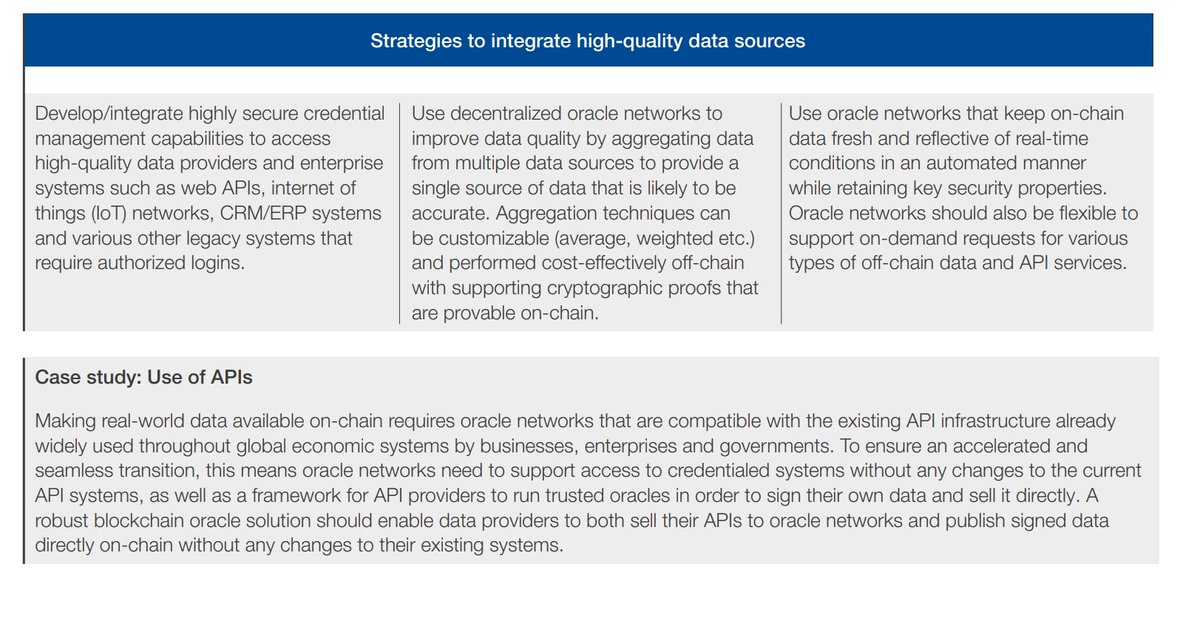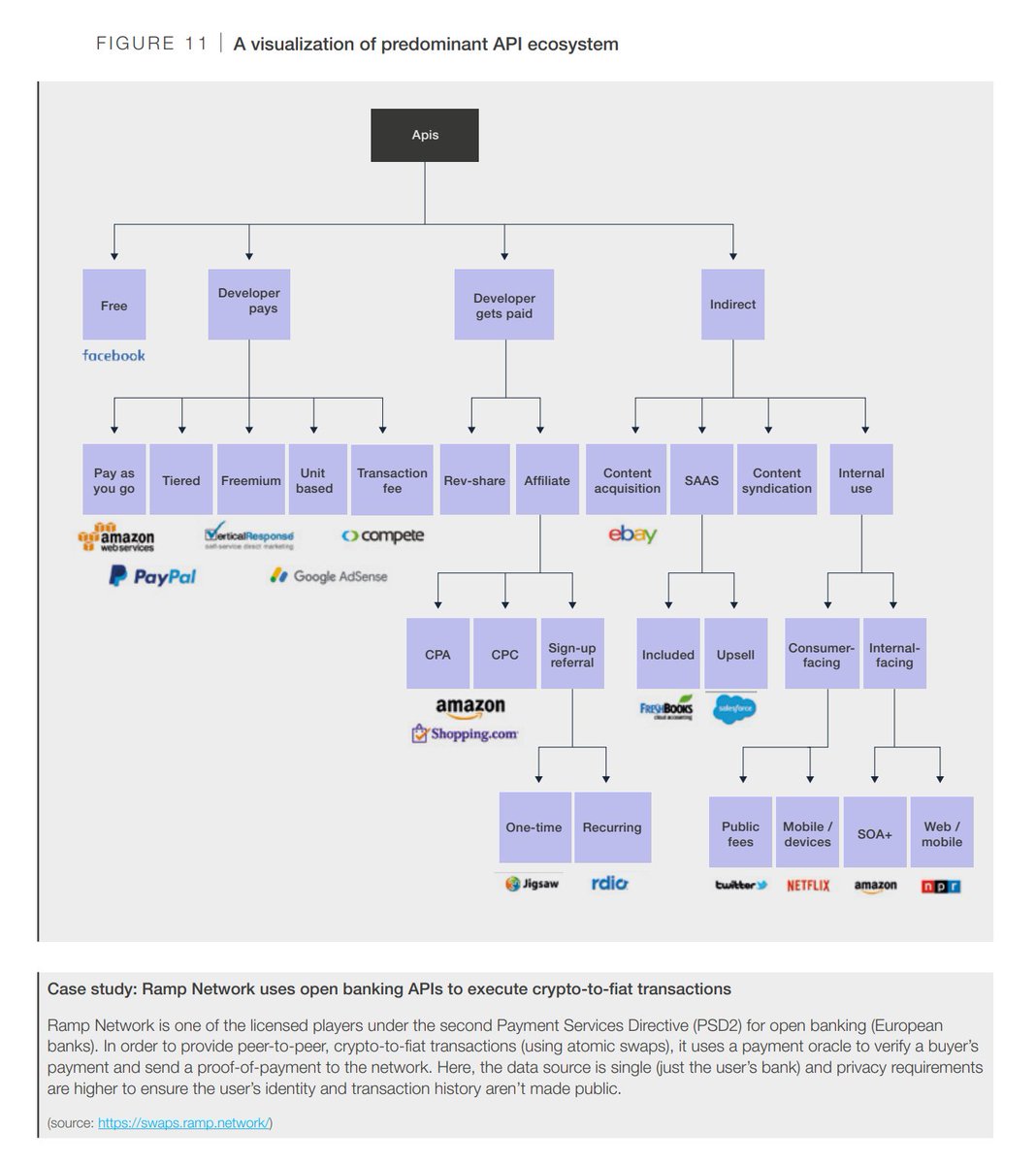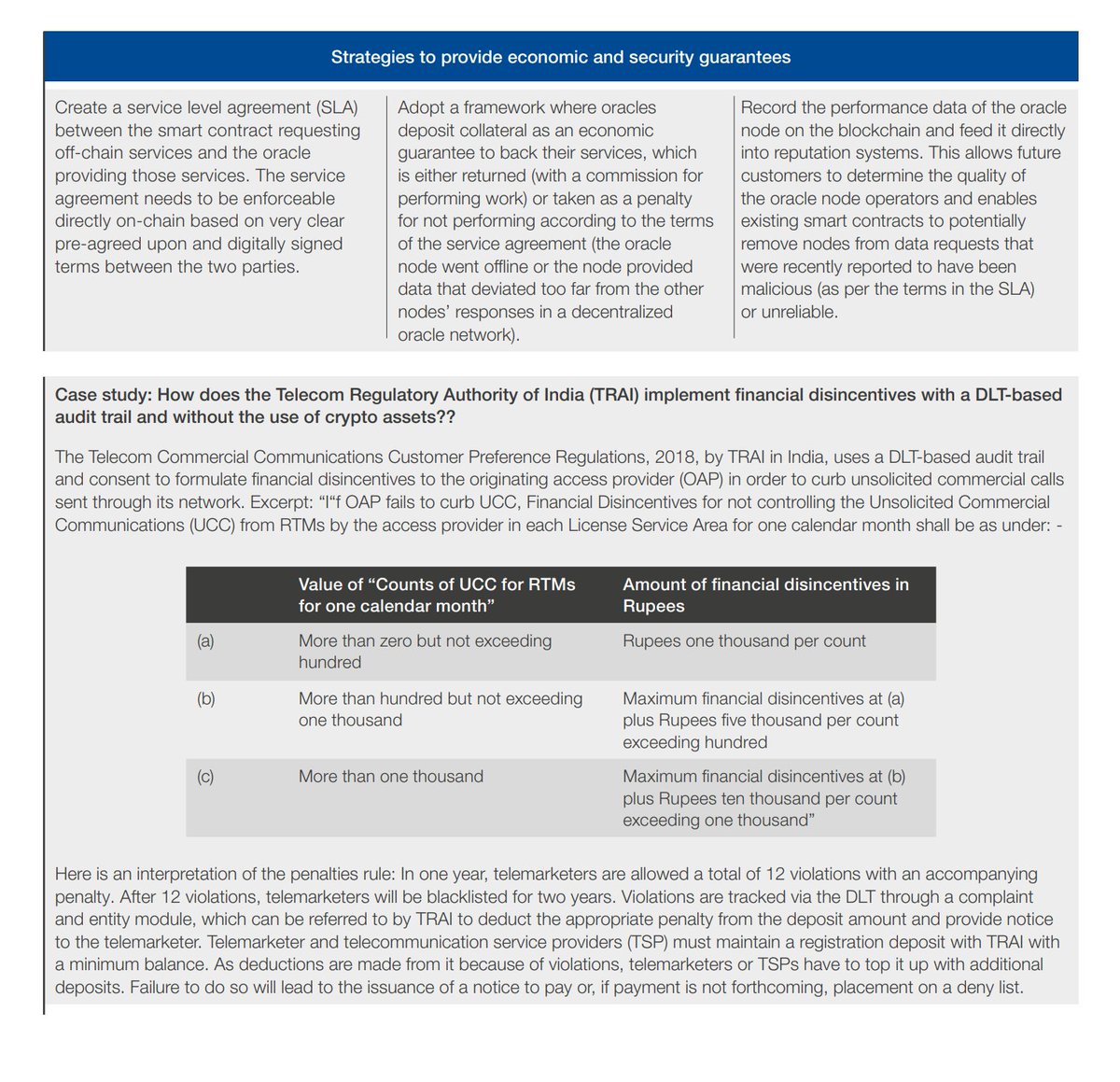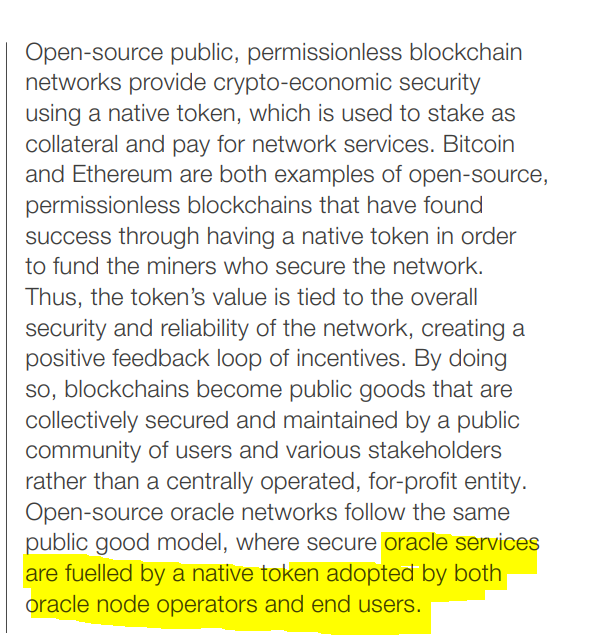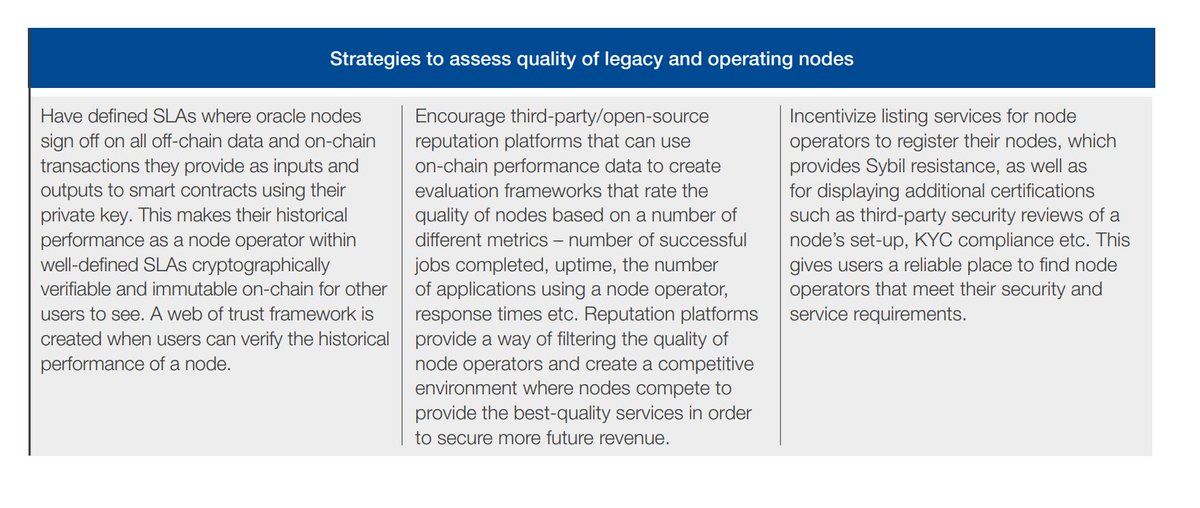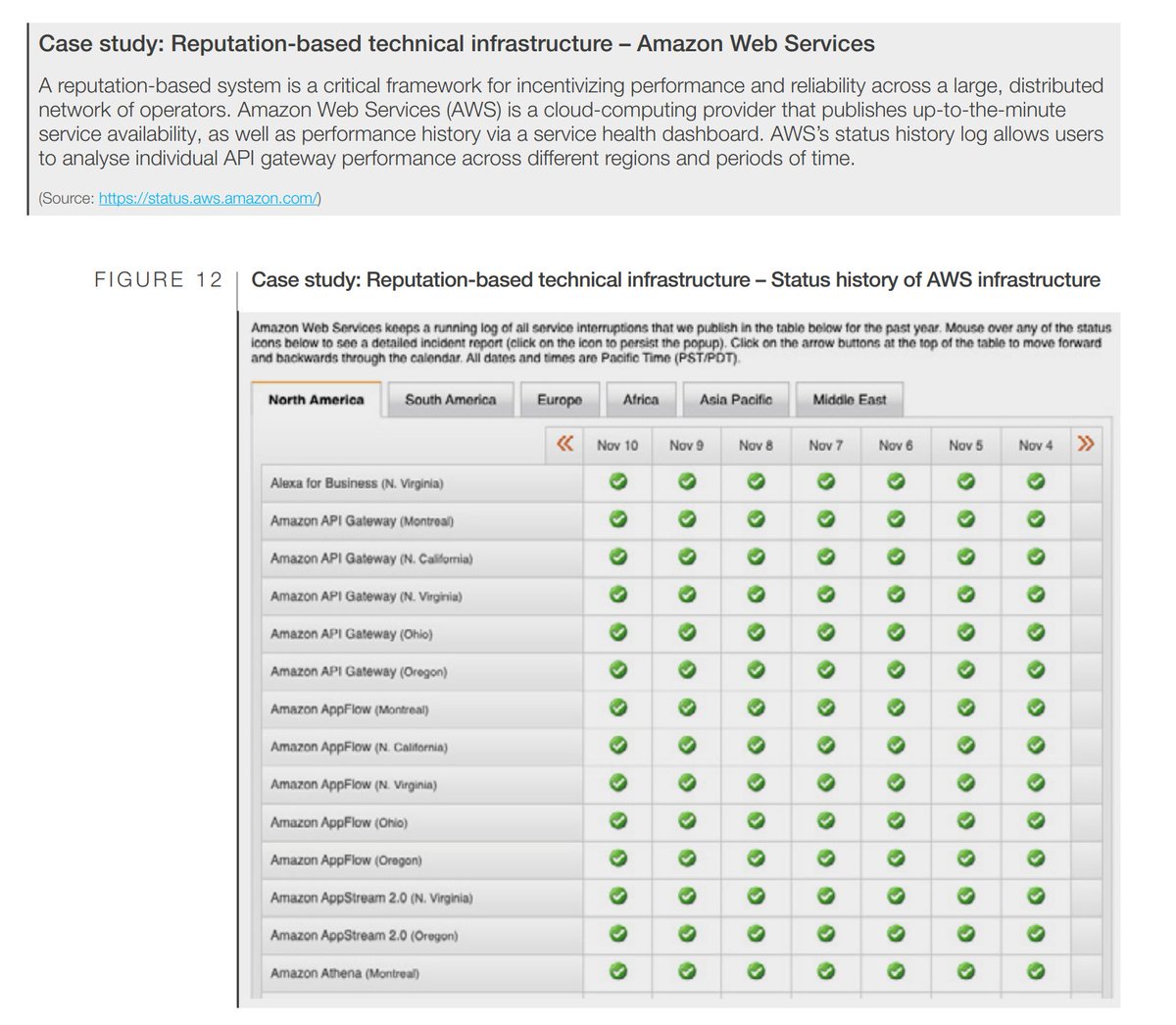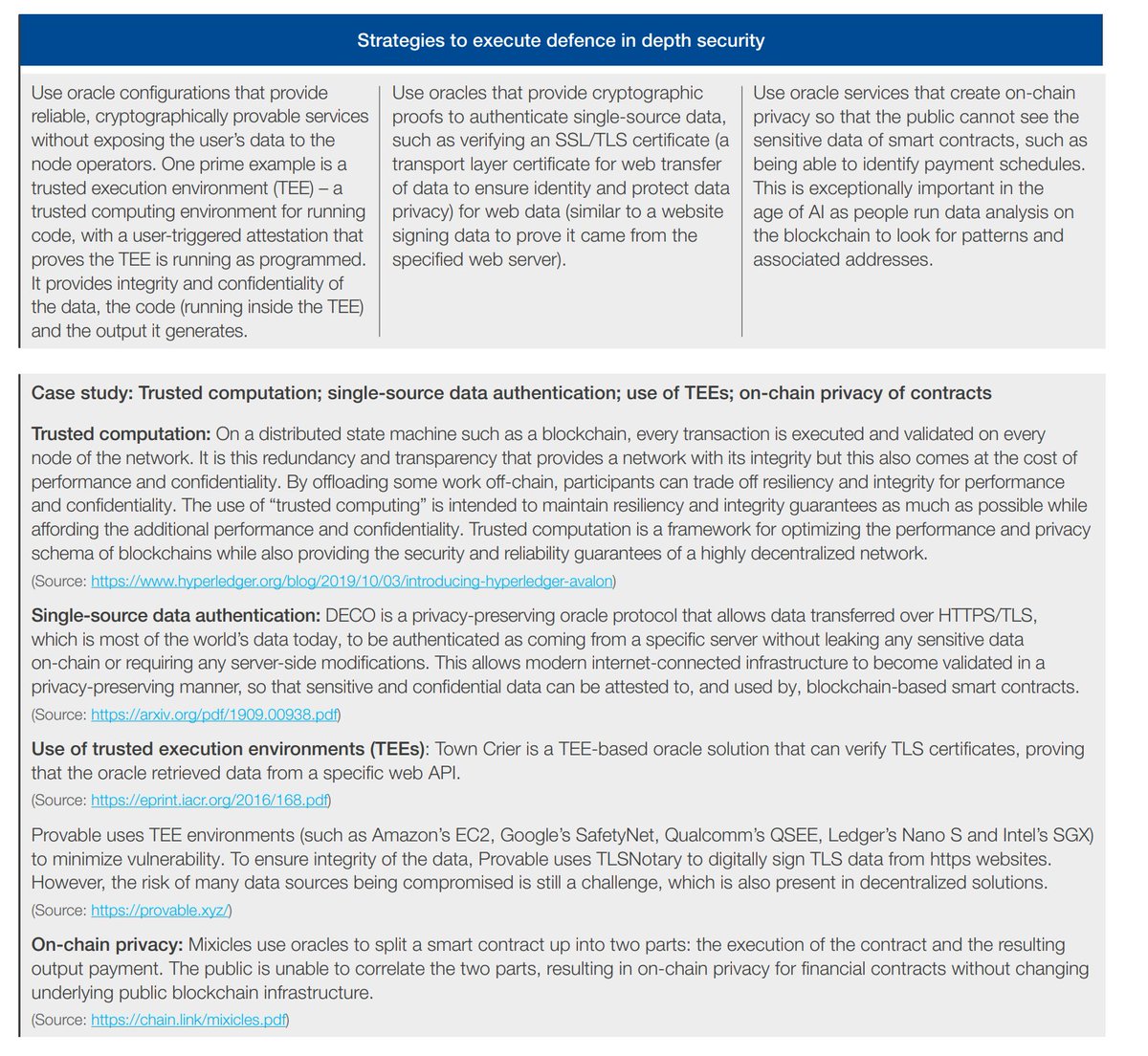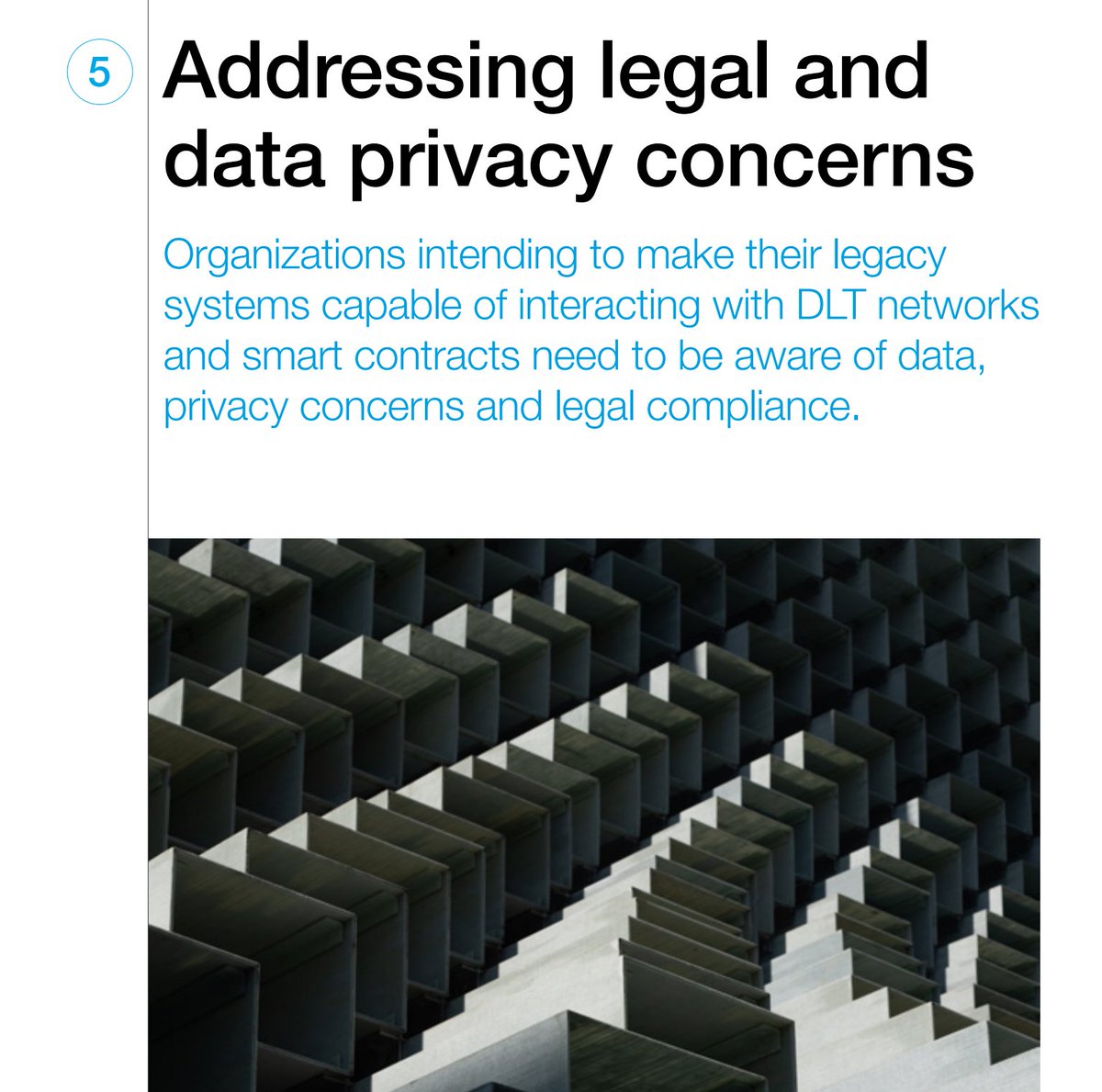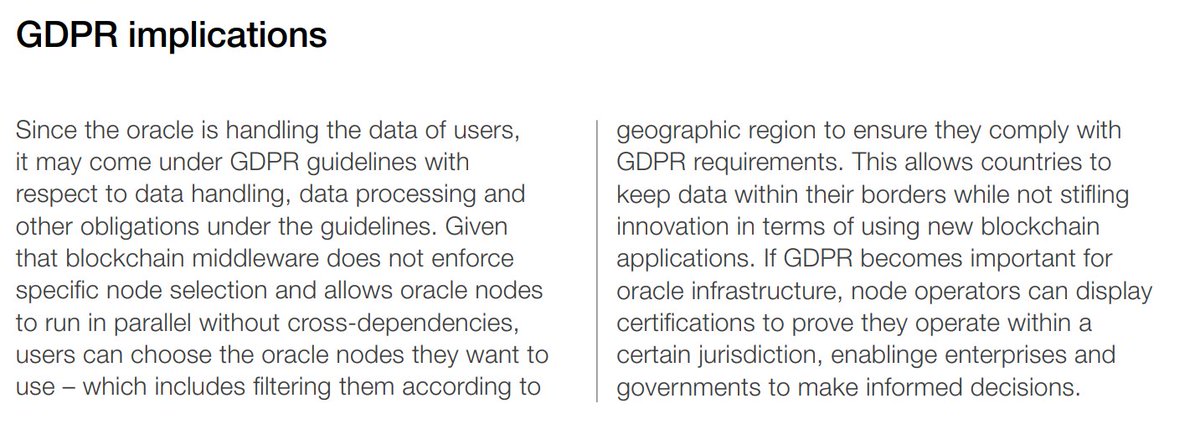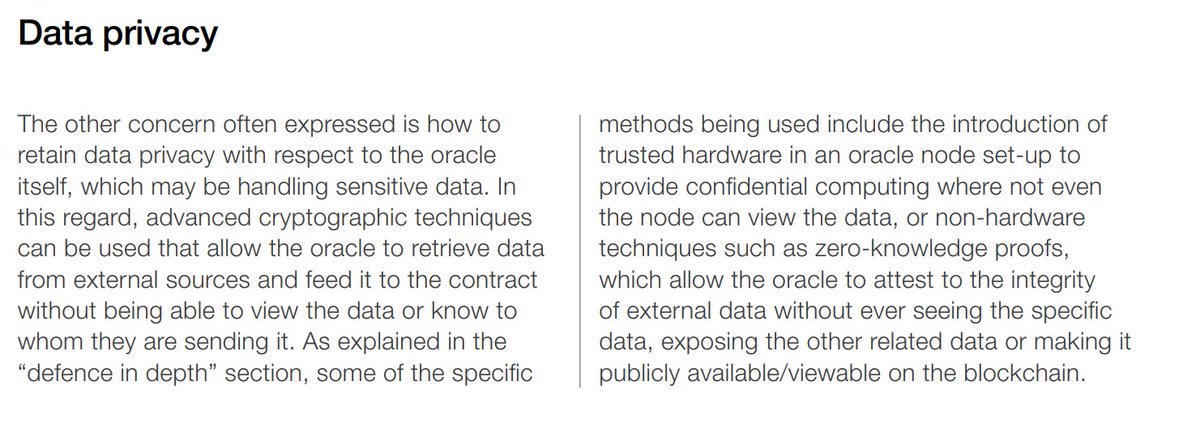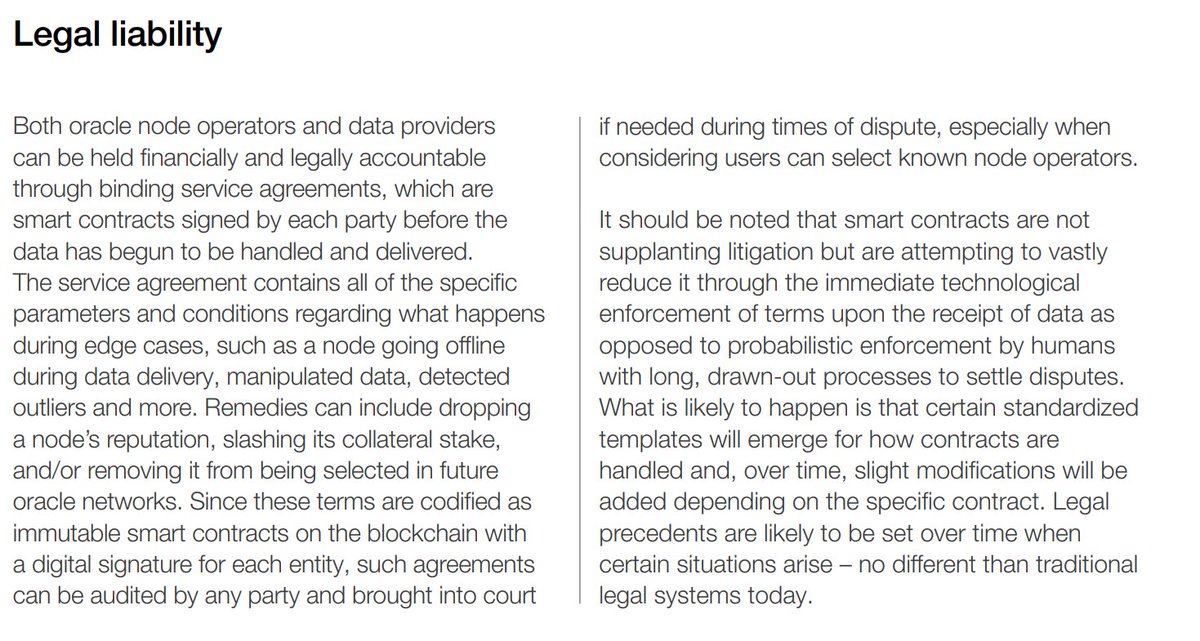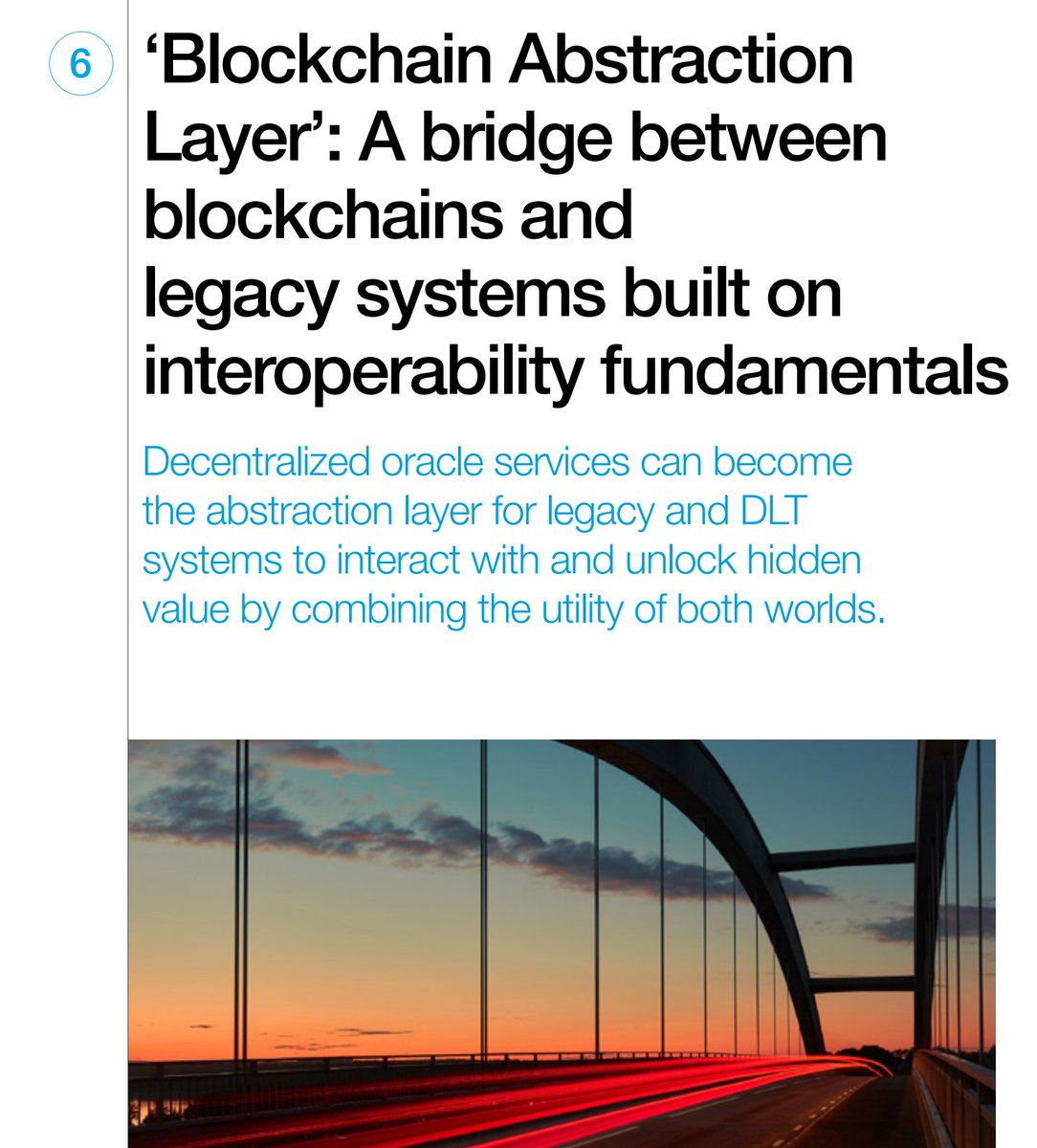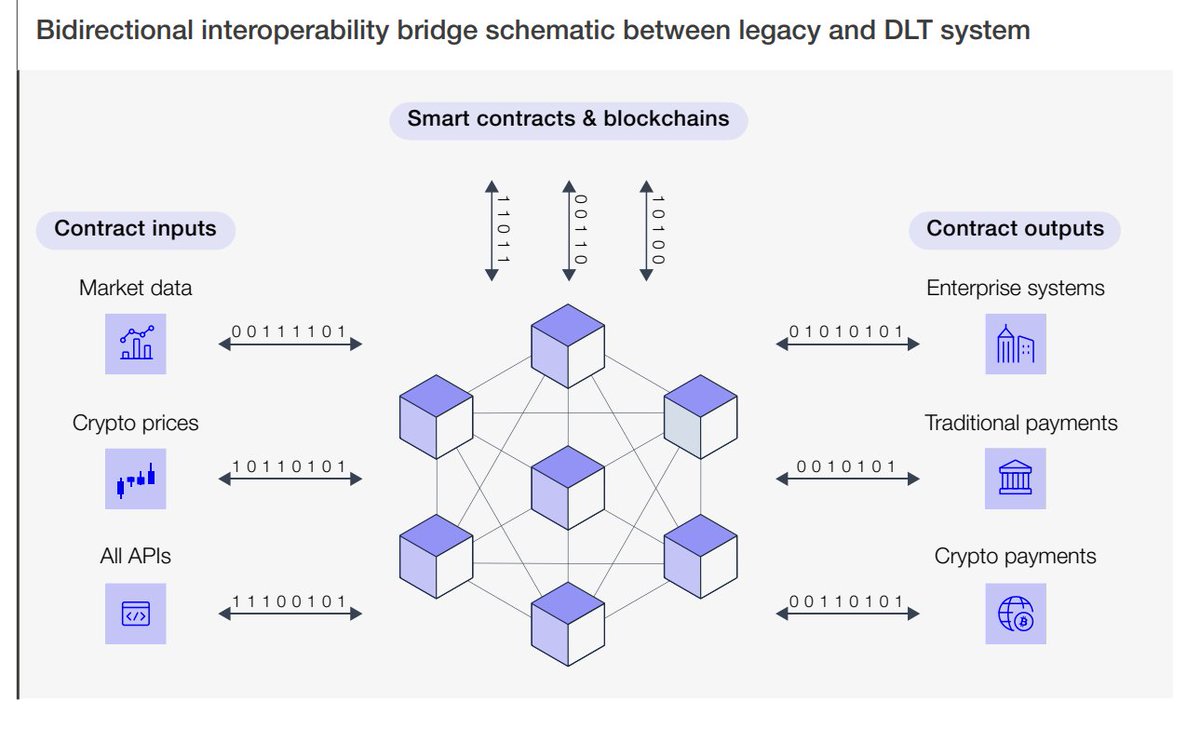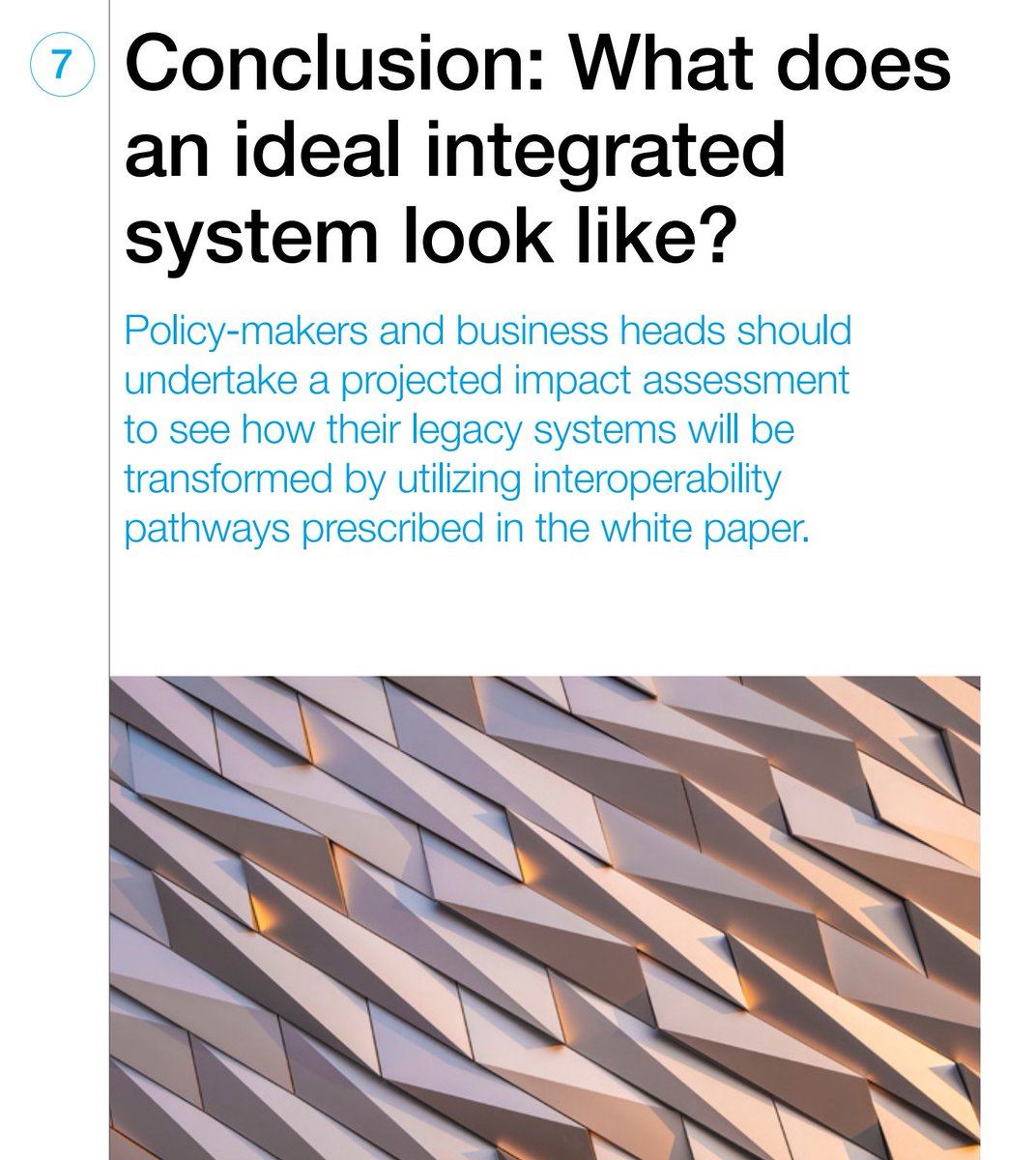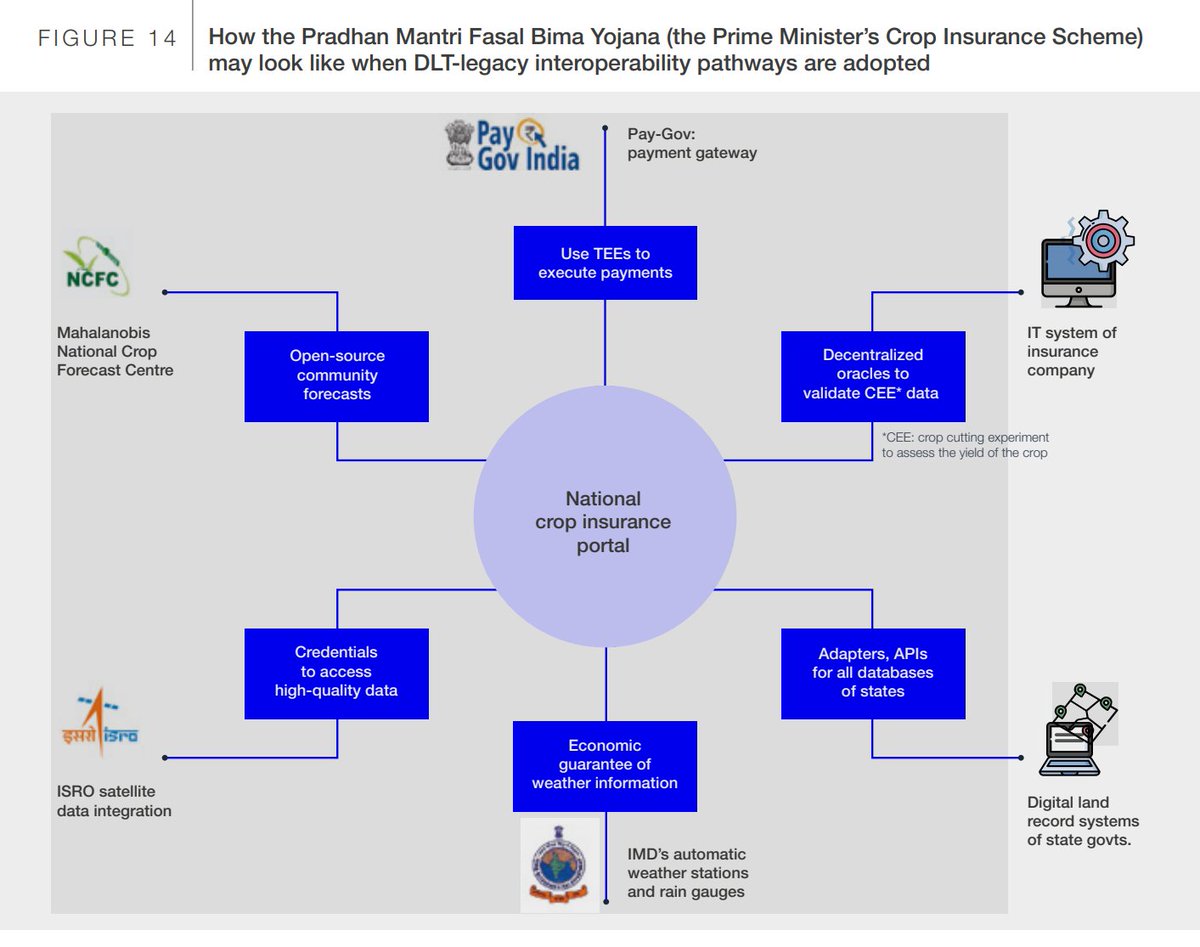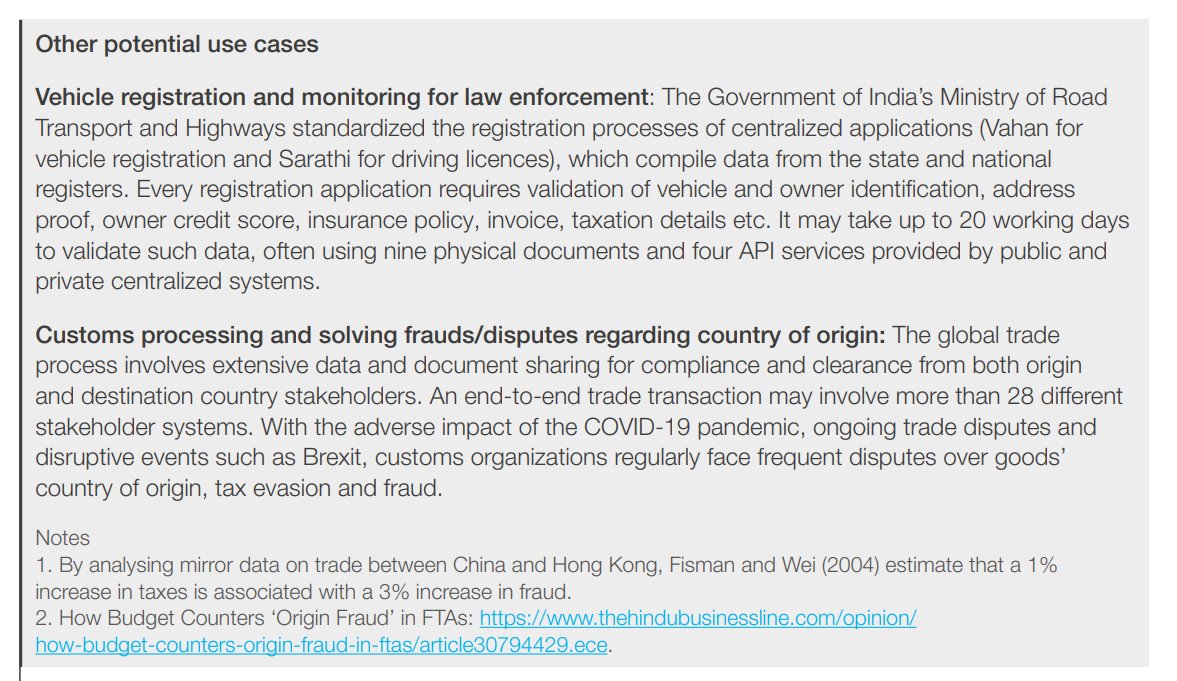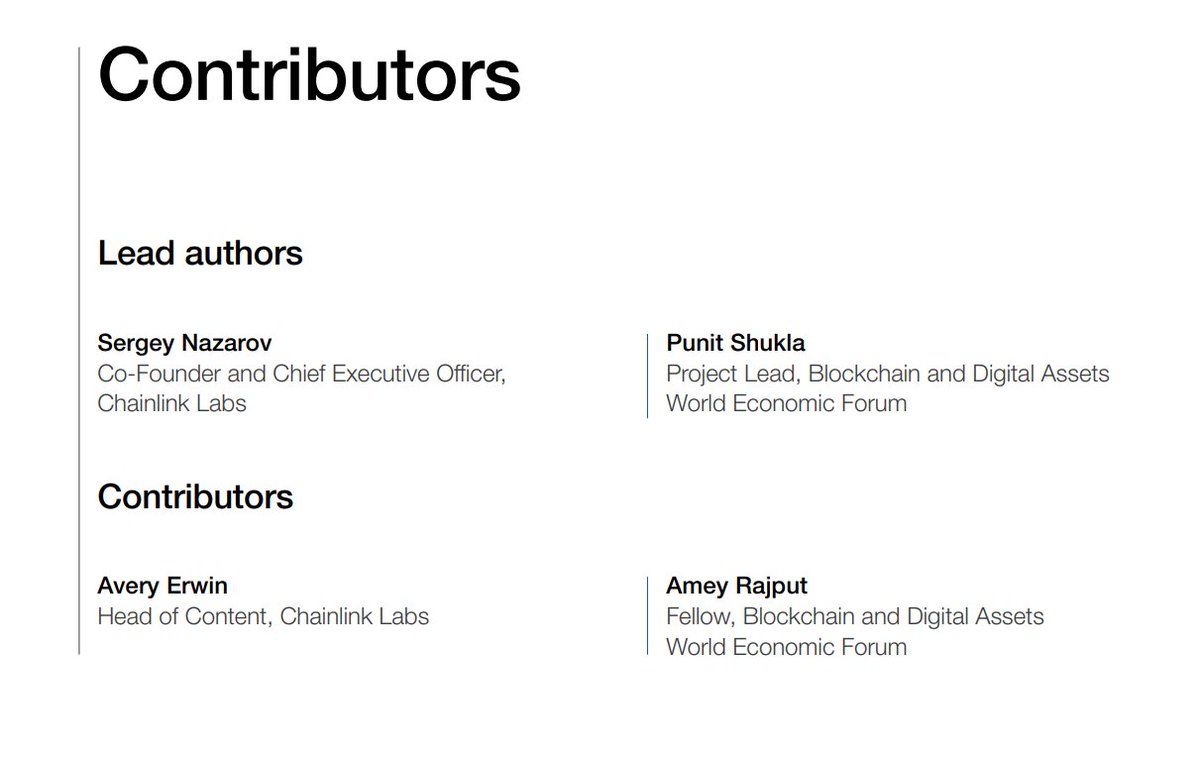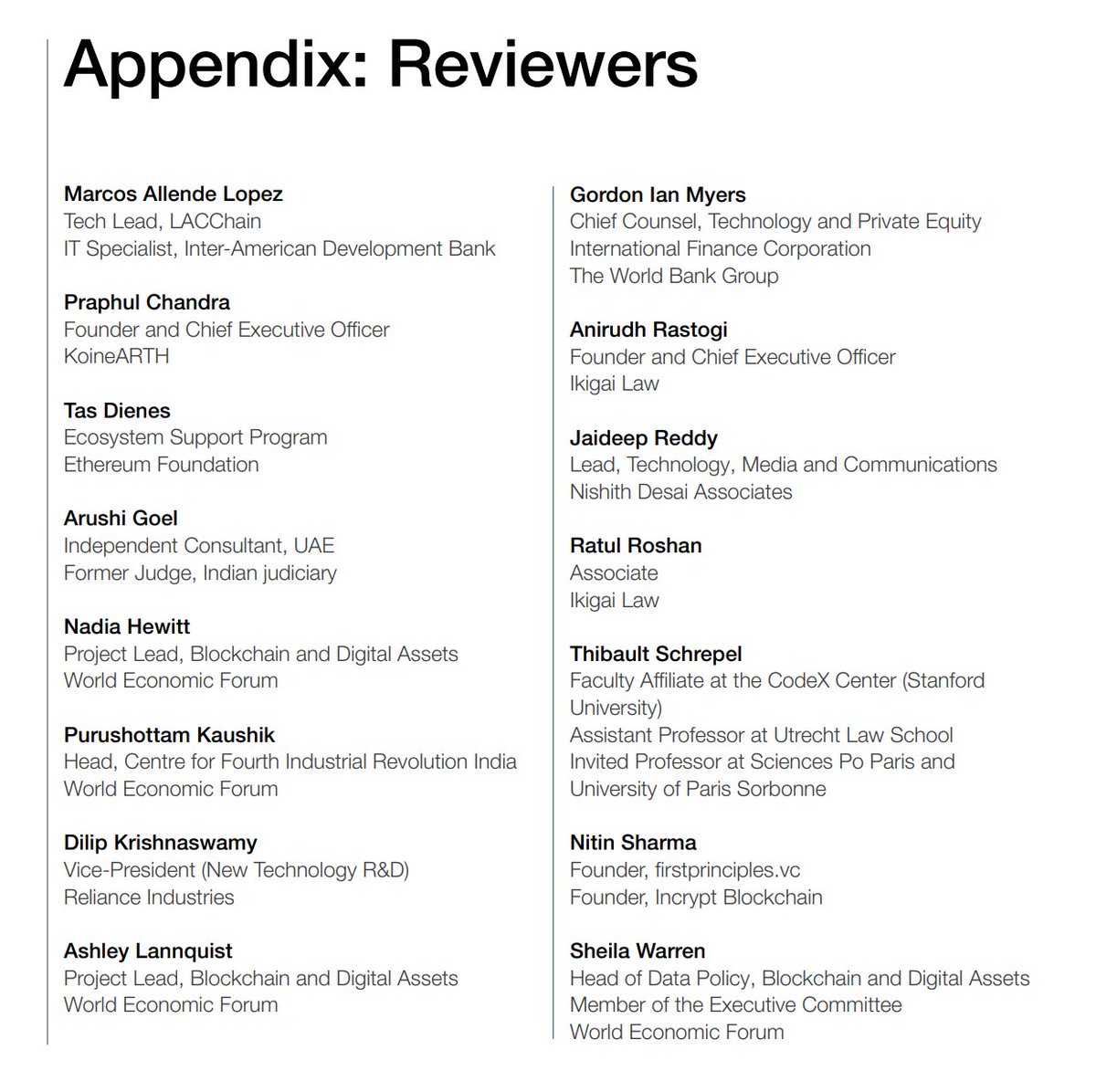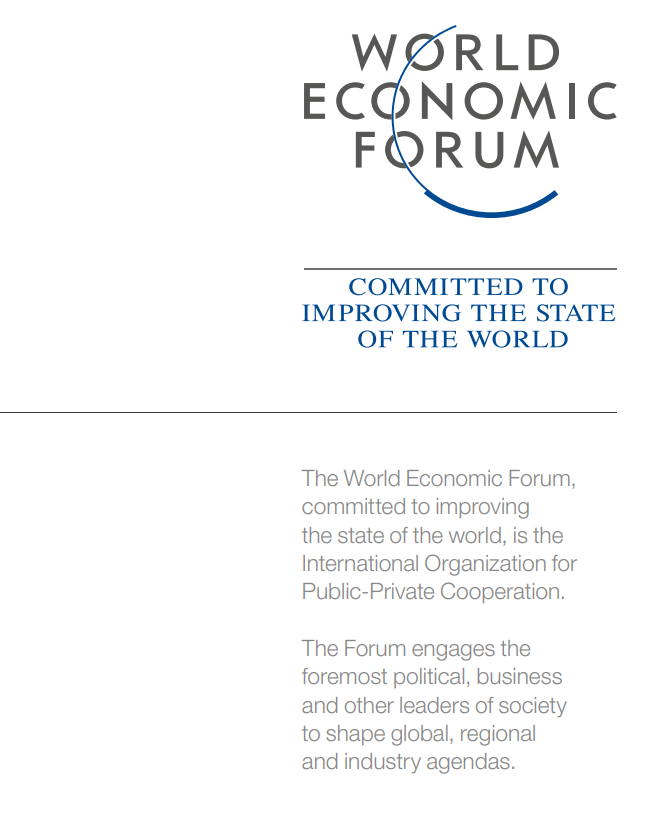The World Economic Forum ( @WEF) officially released a whitepaper in collaboration with @Chainlink on how Oracles enable interoperability between blockchain and legacy systems
The 40 page whitepaper was co-authored by @SergeyNazarov and WEF research team
http://www.wef.ch/interopblockchain
The 40 page whitepaper was co-authored by @SergeyNazarov and WEF research team
http://www.wef.ch/interopblockchain
"An enterprise’s legacy systems could generally
connect, bidirectionally, to blockchain networks
using an oracle. This model is essential if smart
contracts are to have a significant global impact
on business process efficiency and transparency"
Oracles enable the #4IR frens
connect, bidirectionally, to blockchain networks
using an oracle. This model is essential if smart
contracts are to have a significant global impact
on business process efficiency and transparency"
Oracles enable the #4IR frens
In this thread I will be posting screenshot of some of the key points being made about how enterprises can use secure decentralized oracle networks like #Chainlink to connect their legacy backend systems to any and all smart contracts across any blockchain network
Automated data feeds are fundamentally required for low-cost smart contract based agricultural insurance for developing nations
Oracles provide this connection by providing secure middleware between the physical world and the blockchain
Oracles provide this connection by providing secure middleware between the physical world and the blockchain
A standardized oracle solution needs to be
- Supported by a large open‑source community
- Support most blockchain networks and legacy systems
- Verify data integrity and counterparty performance
- Satisfy a wide variety of security and performance needs across all IT systems
- Supported by a large open‑source community
- Support most blockchain networks and legacy systems
- Verify data integrity and counterparty performance
- Satisfy a wide variety of security and performance needs across all IT systems
Now this is where the real meat of the paper is
"The importance of an open-source, decentralized data validation middleware for enterprises"
"The importance of an open-source, decentralized data validation middleware for enterprises"
"Much like the internet, collectively adopting a standard open network benefits everyone by creating much larger network effects, which in turn creates more value for each individual user."
Being open source is fundamental requirement to global adoption, similar to Linux
Being open source is fundamental requirement to global adoption, similar to Linux
"Having blockchain middleware running across all blockchain networks allows enterprises to synchronize blockchain applications, legacy tools and internal databases into one trackable and reliable operation."
Blockchain agnosticism is fundamental requirement for global enterprise
Blockchain agnosticism is fundamental requirement for global enterprise
"Decentralization of oracles should occur at both the node and data source levels, without compromising the quality of any one component (e.g. incorporating low‑quality data), to ensure there are multiple layers of redundancies."
Oracles need to avoid any single point of failure
Oracles need to avoid any single point of failure
"Data providers have two primary options for how to make data available to blockchain networks: provide data to an existing oracle network and/or run their own oracle node to provide origin‑signed data directly to smart contracts."
Data quality is of the utmost importance
Data quality is of the utmost importance
The vast majority of APIs on the internet are not free and open, but instead are paid and authenticated
This means secure oracles will always need to the ability to handle credentials management to provide users with high quality data needed for mission critical smart contracts
This means secure oracles will always need to the ability to handle credentials management to provide users with high quality data needed for mission critical smart contracts
"If smart contracts are to automate business processes between multiple parties, then there need to be very clear terms between the smart contract & the oracle mechanism responsible for connecting it to all the inputs and outputs in the form of a binding service level agreement."
"The collateral staked by oracle nodes acts as a crypto‑economic guarantee of optimal performance as nodes have a direct financial stake in the correct functioning of their oracle services."
@WEF is confirming oracles do in-fact need a native token for cryptoeconomic security
@WEF is confirming oracles do in-fact need a native token for cryptoeconomic security
"Just like consumers...ask their peers about the reputation of a business, users need to be able to determine the quality of oracle node operators, whether that be independent nodes or legacy systems and data providers operating as trusted nodes."
Reputation system also needed
Reputation system also needed
"Legacy‑DLT communication channels need to be secure to ensure that any data from the legacy system is not intercepted and corrupted on the way."
Defense in depth provides this security through
- Town Crier
- DECO
- Mixicles
All #PoweredByChainlink
Defense in depth provides this security through
- Town Crier
- DECO
- Mixicles
All #PoweredByChainlink
Now onto addressing the elephant in the room, legal and data privacy concerns from enterprises
This includes
- GDPR implications (EU regulations)
- Data privacy
- Legal liability
(Btw anyone else notice all the hexagons throughout this paper?)
This includes
- GDPR implications (EU regulations)
- Data privacy
- Legal liability
(Btw anyone else notice all the hexagons throughout this paper?)
"What is needed is a permissionless abstraction layer that anyone can use to connect any on‑chain & off‑chain systems together to provide deterministic operations in business processes, without having to completely rebuild the backend of legacy systems."
Backwards compatibility!
Backwards compatibility!
Finally, what does an ideal integrated system look like?
"As a final example of the impact of an interoperability bridge, India’s crop insurance scheme can highlight the case of performance improvement by adopting the pathways outlined in this white paper."
Just $LINK it
"As a final example of the impact of an interoperability bridge, India’s crop insurance scheme can highlight the case of performance improvement by adopting the pathways outlined in this white paper."
Just $LINK it
And that's the thread my frens, I recommend digging into the paper yourself to understand all the nuances as I only provided a high level overview of the main points
TL;DR: @Chainlink is a framework for building oracles networks that can meet everything outlined in this paper
TL;DR: @Chainlink is a framework for building oracles networks that can meet everything outlined in this paper

 Read on Twitter
Read on Twitter